Here are my favorite poems about innocence categorized:
- Poems about innocence of childhood
- Poems about innocence and experience
- Poems on innocence of a girl
- Short poems about innocence
So if you want the best poems about innocence, then you’re in the right place.
Let’s get started!
- 61 Fulfilling Poems About Retirement
- 113 Engulfing Poems About Growth
- 143 Stupefying Famous Poems About Life
- 77 Heartwarming Poems About Growing Up
- 83 Courageous Poems About Change
- 21 Memorable Poems About New Beginnings
- 163 Meaningful Poems About Life
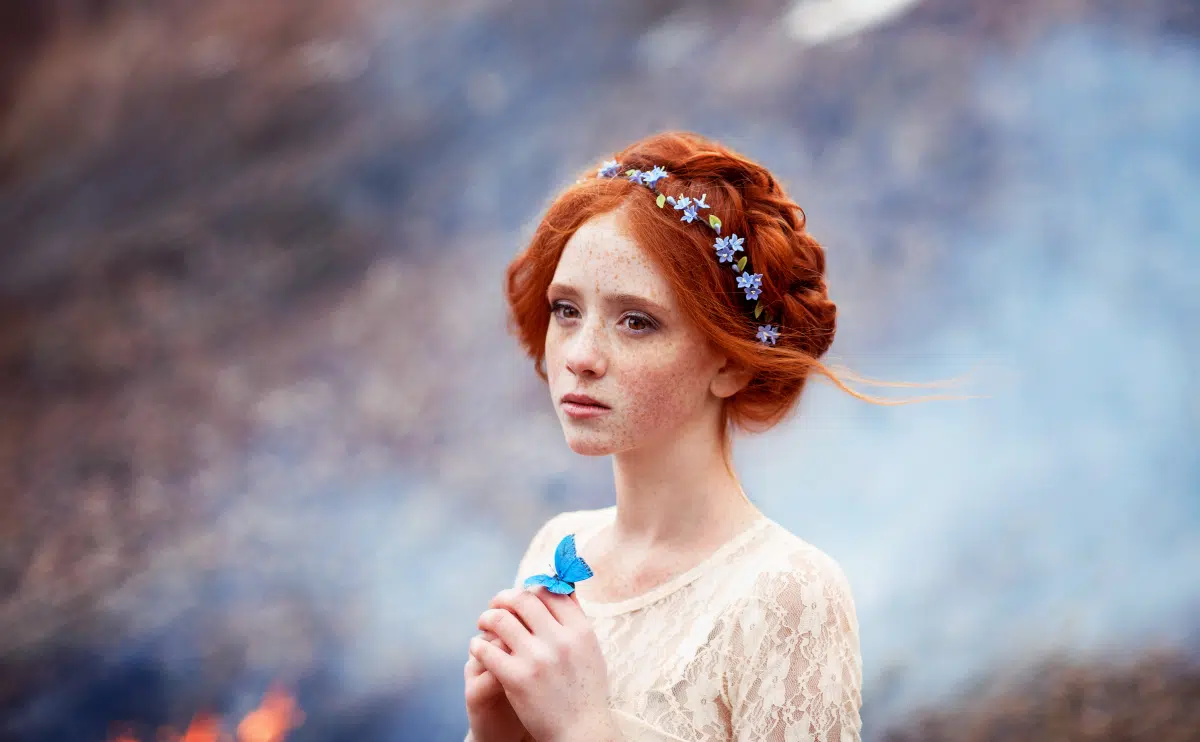
Carefree Poems About Innocence
Embark on a tender journey through a meticulously curated collection of poems, celebrating the purity and wonder of innocence.
Delight in verses that embrace the innocence of childhood, where carefree spirits dance in the sunlit meadows of youth. Encounter the magic of concise and evocative short poems, capturing the essence of innocence in words that gently tug at your heartstrings.
This enchanting anthology unveils the timeless beauty of innocence, evoking nostalgia and igniting a sense of wonder in every line.
Let’s get right into it!
My #1 Favorite Poem About Innocence

“Innocence” by Anne Spencer
She tripped and fell against a star,
A lady we all have known;
Just what the villagers lusted for
To claim her one of their own;
Fallen but once the lower felt she,
So turned her face and died,—
With never a hounding fool to see
’Twas a star-lance in her side!
Poems About Innocence of Childhood
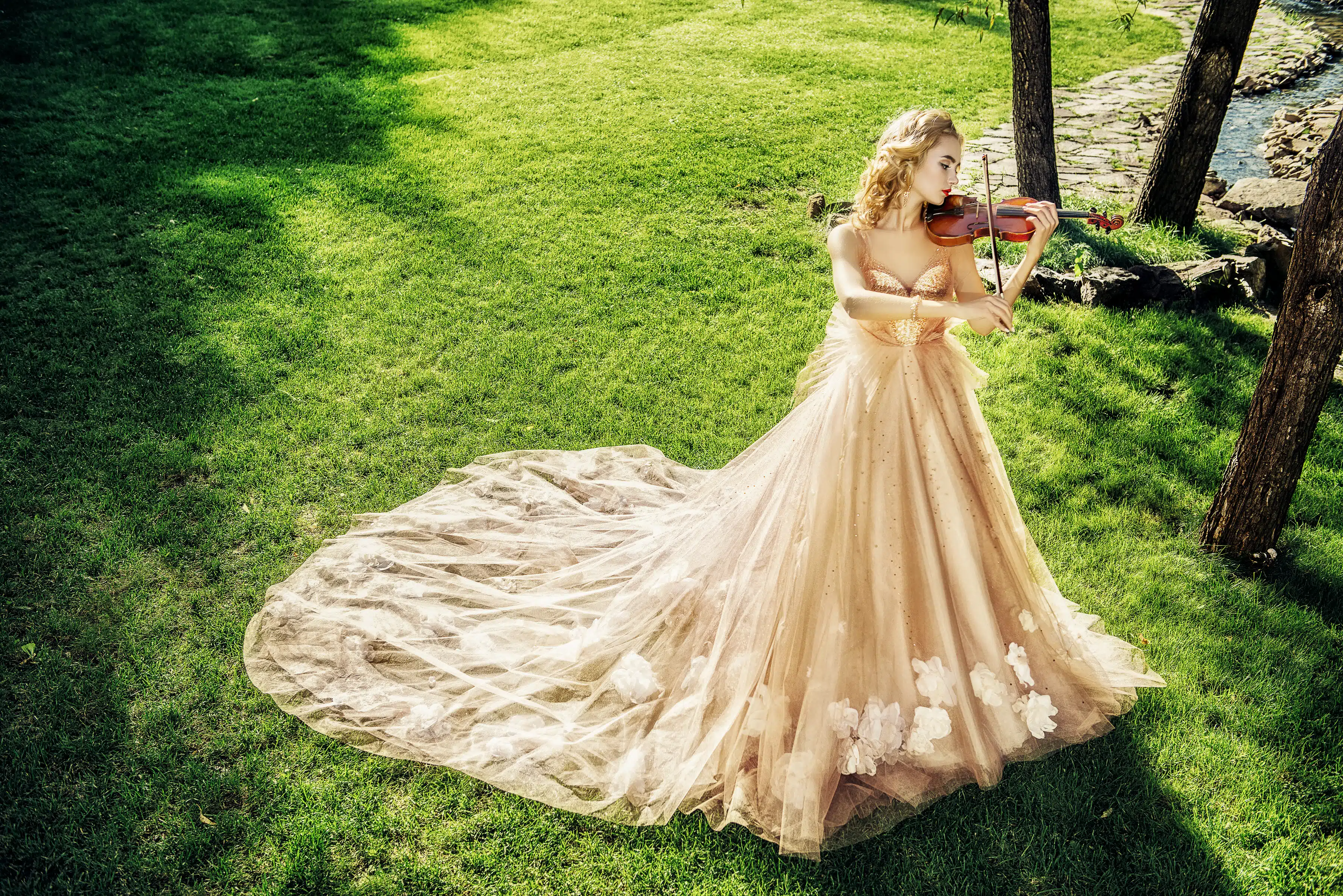
“Introduction to the Songs of Innocence” by William Blake
Piping down the valleys wild
Piping songs of pleasant glee
On a cloud I saw a child.
And he laughing said to me.
Pipe a song about a Lamb;
So I piped with merry chear,
Piper pipe that song again—
So I piped, he wept to hear.
Drop thy pipe thy happy pipe
Sing thy songs of happy chear,
So I sung the same again
While he wept with joy to hear
Piper sit thee down and write
In a book that all may read—
So he vanish’d from my sight.
And I pluck’d a hollow reed.
And I made a rural pen,
And I stain’d the water clear,
And I wrote my happy songs
Every child may joy to hear
“The Little Black Boy” by William Blake
My mother bore me in the southern wild,
And I am black, but O! my soul is white;
White as an angel is the English child:
But I am black as if bereav’d of light.
My mother taught me underneath a tree
And sitting down before the heat of day,
She took me on her lap and kissed me,
And pointing to the east began to say.
Look on the rising sun: there God does live
And gives his light, and gives his heat away.
And flowers and trees and beasts and men receive
Comfort in morning joy in the noonday.
And we are put on earth a little space,
That we may learn to bear the beams of love,
And these black bodies and this sun-burnt face
Is but a cloud, and like a shady grove.
For when our souls have learn’d the heat to bear
The cloud will vanish we shall hear his voice.
Saying: come out from the grove my love & care,
And round my golden tent like lambs rejoice.
Thus did my mother say and kissed me,
And thus I say to little English boy.
When I from black and he from white cloud free,
And round the tent of God like lambs we joy:
Ill shade him from the heat till he can bear,
To lean in joy upon our fathers knee.
And then I’ll stand and stroke his silver hair,
And be like him and he will then love me.
“A Cradle Song” by William Blake
Sweet dreams form a shade,
O’er my lovely infants head.
Sweet dreams of pleasant streams,
By happy silent moony beams
Sweet sleep with soft down.
Weave thy brows an infant crown.
Sweet sleep Angel mild,
Hover o’er my happy child.
Sweet smiles in the night,
Hover over my delight.
Sweet smiles Mothers smiles,
All the livelong night beguiles.
Sweet moans, dovelike sighs,
Chase not slumber from thy eyes,
Sweet moans, sweeter smiles,
All the dovelike moans beguiles.
Sleep sleep happy child,
All creation slept and smil’d.
Sleep sleep, happy sleep.
While o’er thee thy mother weep
Sweet babe in thy face,
Holy image I can trace.
Sweet babe once like thee.
Thy maker lay and wept for me
Wept for me for thee for all,
When he was an infant small.
Thou his image ever see.
Heavenly face that smiles on thee,
Smiles on thee on me on all,
Who became an infant small,
Infant smiles are His own smiles,
Heaven & earth to peace beguiles.
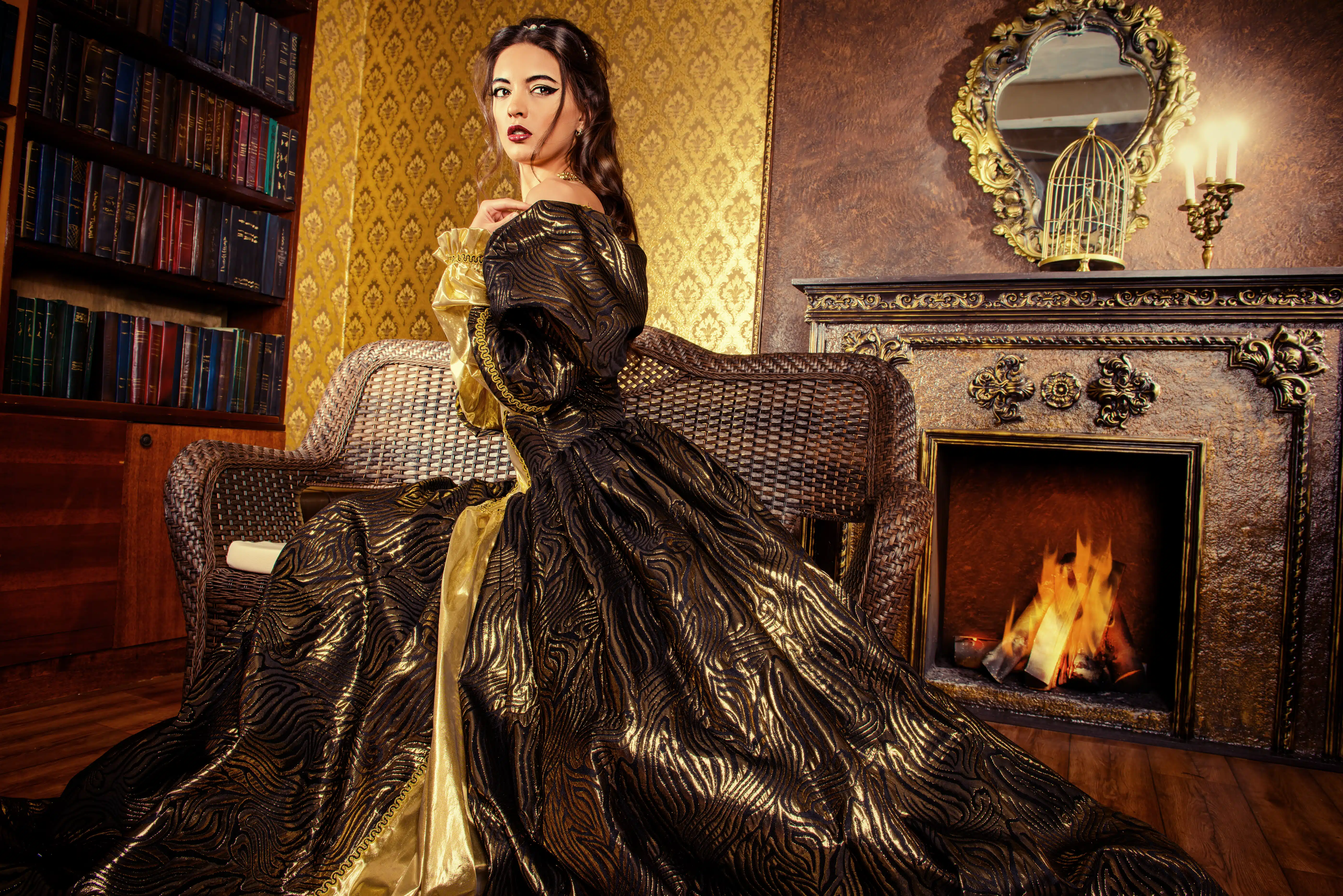
“The Chimney Sweeper” by William Blake
When my mother died I was very young,
And my father sold me while yet my tongue
Could scarcely cry ” ‘weep! ‘weep! ‘weep! ‘weep!”
So your chimneys I sweep & in soot I sleep.
There’s little Tom Dacre, who cried when his head
That curled like a lamb’s back, was shaved, so I said,
“Hush, Tom! never mind it, for when your head’s bare,
You know that the soot cannot spoil your white hair.”
And so he was quiet, & that very night,
As Tom was a-sleeping he had such a sight!
That thousands of sweepers, Dick, Joe, Ned, & Jack,
Were all of them locked up in coffins of black;
And by came an Angel who had a bright key,
And he opened the coffins & set them all free;
Then down a green plain, leaping, laughing they run,
And wash in a river and shine in the Sun.
Then naked & white, all their bags left behind,
They rise upon clouds, and sport in the wind.
And the Angel told Tom, if he’d be a good boy,
He’d have God for his father & never want joy.
And so Tom awoke; and we rose in the dark
And got with our bags & our brushes to work.
Though the morning was cold, Tom was happy & warm;
So if all do their duty, they need not fear harm.
“Nurse’s Song” by William Blake
When voices of children are heard on the green,
And laughing is heard on the hill,
My heart is at rest within my breast,
And everything else is still.
‘Then come home, my children, the sun is gone down,
And the dews of night arise;
Come, come, leave off play, and let us away,
Till the morning appears in the skies.’
‘No, no, let us play, for it is yet day,
And we cannot go to sleep;
Besides, in the sky the little birds fly,
And the hills are all covered with sheep.’
‘Well, well, go and play till the light fades away,
And then go home to bed.’
The little ones leaped, and shouted, and laughed,
And all the hills echoed.
“To R. L. S. – A Child” by William Ernest Henley
A child,
Curious and innocent,
Slips from his Nurse, and rejoicing
Loses himself in the Fair.
Thro’ the jostle and din
Wandering, he revels,
Dreaming, desiring, possessing;
Till, of a sudden
Tired and afraid, he beholds
The sordid assemblage
Just as it is; and he runs
With a sob to his Nurse
(Lighting at last on him),
And in her motherly bosom
Cries him to sleep.
Thus thro’ the World,
Seeing and feeling and knowing,
Goes Man: till at last,
Tired of experience, he turns
To the friendly and comforting breast
Of the old nurse, Death.
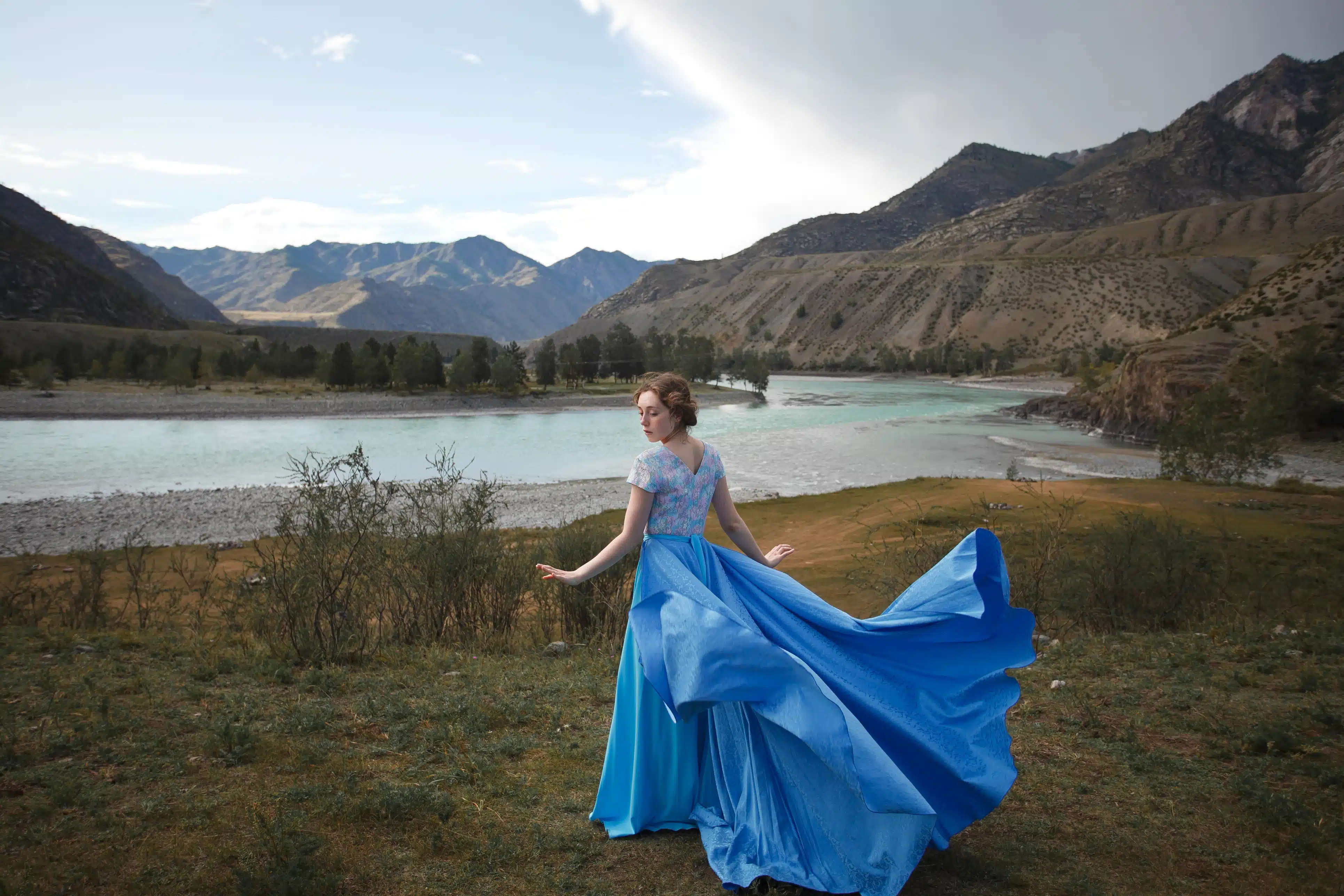
“The Lamb” by William Blake
Little Lamb who made thee
Dost thou know who made thee,
Gave thee life & bid thee feed.
By the stream & o’er the mead:
Gave thee clothing of delight,
Softest clothing; woolly bright;
Gave thee such a tender voice,
Making all the vales rejoice:
Little Lamb who made thee
Does thou know who made thee
Little Lamb I’ll tell thee,
Little Lamb I’ll tell thee:
He is called by thy name.
For he calls himself a Lamb:
He is meek & he is mild,
He became a little child:
I a child, and thou a lamb.
We are called by his name.
Little Lamb God bless thee.
Little Lamb God bless thee.
“To A Child Dancing In The Wind” by William Butler Yeats
I
Dance there upon the shore;
What need have you to care
For wind or water’s roar?
And tumble out your hair
That the salt drops have wet;
Being young you have not known
The fool’s triumph, nor yet
Love lost as soon as won,
Nor the best labourer dead
And all the sheaves to bind.
What need have you to dread
The monstrous crying of wind?
II
Has no one said those daring
Kind eyes should be more learn’d?
Or warned you how despairing
The moths are when they are burned,
I could have warned you, but you are young,
So we speak a different tongue.
O you will take whatever’s offered
And dream that all the world’s a friend,
Suffer as your mother suffered,
Be as broken in the end.
But I am old and you are young,
And I speak a barbarous tongue.
“The Infant M—- M—-” by William Wordsworth
Unquiet Childhood here by special grace
Forgets her nature, opening like a flower
That neither feeds nor wastes its vital power
In painful struggles. Months each other chase,
And nought untunes that Infant’s voice; no trace
Of fretful temper sullies her pure cheek;
Prompt, lively, self-sufficing, yet so meek
That one enrapt with gazing on her face
(Which even the placid innocence of death
Could scarcely make more placid, heaven more bright)
Might learn to picture, for the eye of faith,
The Virgin, as she shone with kindred light;
A nursling couched upon her mother’s knee,
Beneath some shady palm of Galilee.
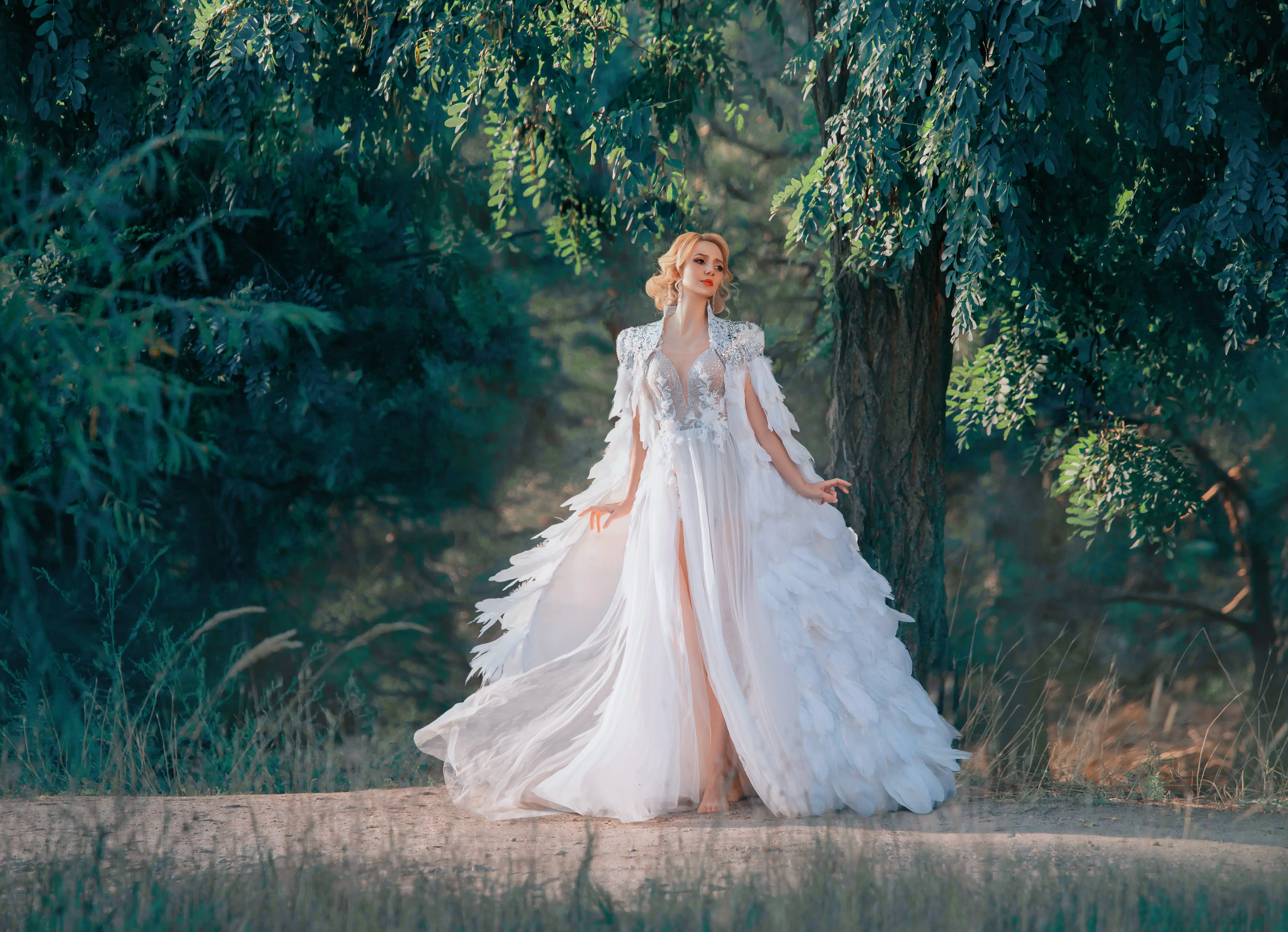
“Holy Thursday” by William Blake
Twas on a Holy Thursday their innocent faces clean
The children walking two & two in red & blue & green
Grey-headed beadles walkd before with wands as white as snow,
Till into the high dome of Pauls they like Thames waters flow
O what a multitude they seemd these flowers of London town
Seated in companies they sit with radiance all their own
The hum of multitudes was there but multitudes of lambs
Thousands of little boys & girls raising their innocent hands
Now like a mighty wind they raise to heaven the voice of song
Or like harmonious thunderings the seats of Heaven among
Beneath them sit the aged men wise guardians of the poor
Then cherish pity, lest you drive an angel from your door
“To A Little Girl” by Thomas Frederick Young
E ach wish, my fairest child, I pen,
F or thee I write with earnest heart;
F or who shall say, that ere, again,
I shall behold thee; when we part
E ‘en now the time is near, I start.
H ere are my wishes, then, sweet child,
A long life’s pathway may thou go,
R ob’d white, as now, in virtue mild,
R etaining pure, thy virtue’s snow.
I wish thee this, and wish thee more,–
S o long as thou on earth hath life,
O h! may thy heart be never sore,
N or vex’d with anxious care or strife!
“Dedication: Riley Child-Rhymes” by James Whitcomb Riley
He owns the bird-songs of the hills –
The laughter of the April rills;
And his are all the diamonds set
In Morning’s dewy coronet, –
And his the Dusk’s first minted stars
That twinkle through the pasture-bars
And litter all the skies at night
With glittering scraps of silver light; –
The rainbow’s bar, from rim to rim,
In beaten gold, belongs to him.
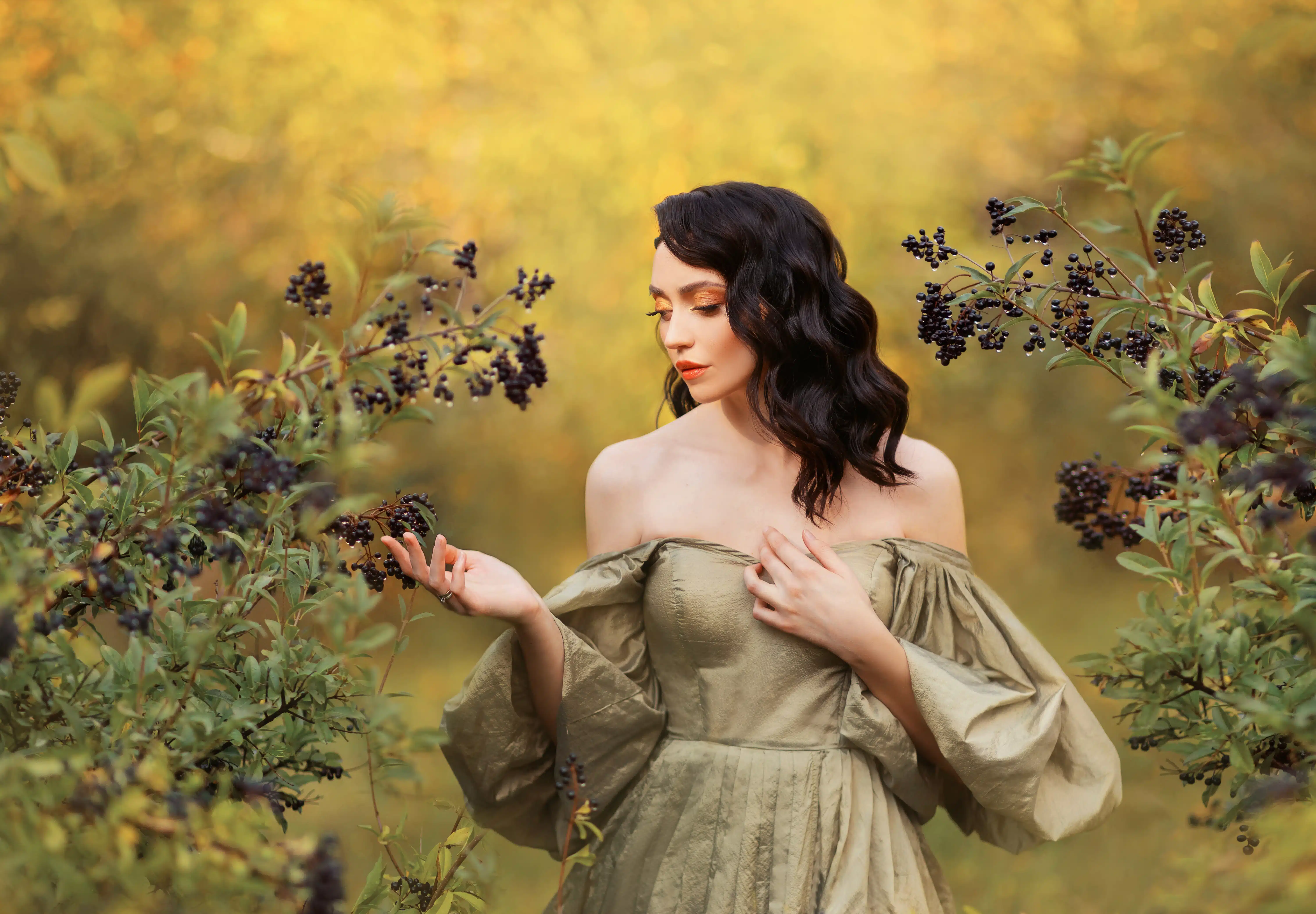
“The Echoing Green” by William Blake
The sun does arise,
And make happy the skies;
The merry bells ring
To welcome the Spring;
The skylark and thrush,
The birds of the bush,
Sing louder around
To the bells’ cheerful sound;
While our sports shall be seen
On the echoing green.
Old John, with white hair,
Does laugh away care,
Sitting under the oak,
Among the old folk.
They laugh at our play,
And soon they all say,
‘Such, such were the joys
When we all—girls and boys—
In our youth-time were seen
On the echoing green.’
Till the little ones, weary,
No more can be merry:
The sun does descend,
And our sports have an end.
Round the laps of their mothers
Many sisters and brothers,
Like birds in their nest,
Are ready for rest,
And sport no more seen
On the darkening green.
“Characteristics Of A Child Three Years Old” by William Wordsworth
Loving she is, and tractable, though wild;
And Innocence hath privilege in her
To dignify arch looks and laughing eyes;
And feats of cunning; and the pretty round
Of trespasses, affected to provoke
Mock-chastisement and partnership in play.
And, as a faggot sparkles on the hearth,
Not less if unattended and alone
Than when both young and old sit gathered round
And take delight in its activity;
Even so this happy Creature of herself
Is all-sufficient, solitude to her
Is blithe society, who fills the air
With gladness and involuntary songs.
Light are her sallies as the tripping fawn’s
Forth-startled from the fern where she lay couched;
Unthought-of, unexpected, as the stir
Of the soft breeze ruffling the meadow-flowers,
Or from before it chasing wantonly
The many-coloured images imprest
Upon the bosom of a placid lake.
“The Little Vagabond” by William Blake
Dear mother, dear mother, the Church is cold;
But the Alehouse is healthy, and pleasant, and warm.
Besides, I can tell where I am used well;
Such usage in heaven will never do well.
But, if at the Church they would give us some ale,
And a pleasant fire our souls to regale,
We’d sing and we’d pray all the livelong day,
Nor ever once wish from the Church to stray.
Then the Parson might preach, and drink, and sing,
And we’d be as happy as birds in the spring;
And modest Dame Lurch, who is always at church,
Would not have bandy children, nor fasting, nor birch.
And God, like a father, rejoicing to see
His children as pleasant and happy as He,
Would have no more quarrel with the Devil or the barrel,
But kiss him, and give him both drink and apparel.
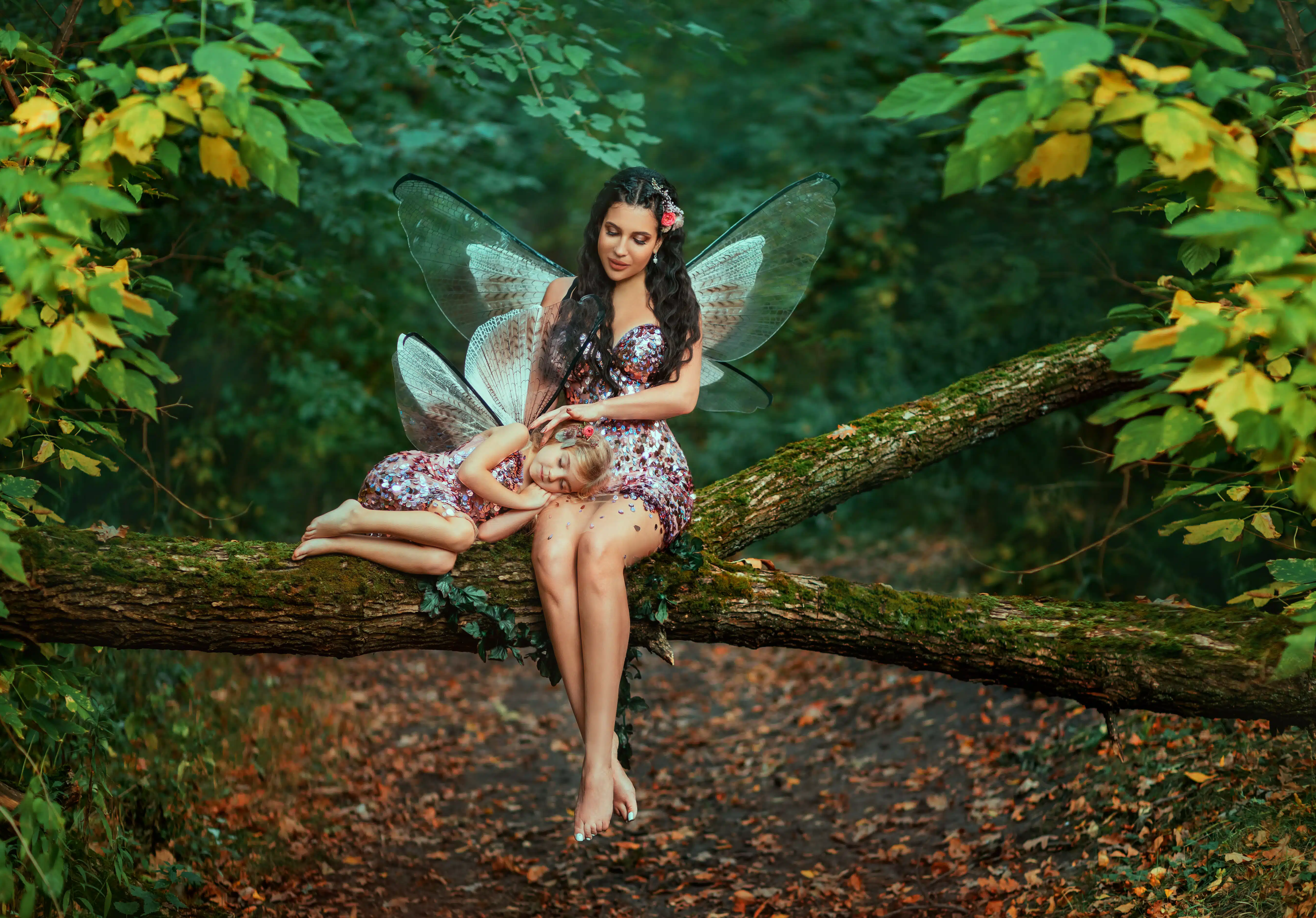
“A Cradle Song” by William Blake
Sleep, sleep, beauty bright,
Dreaming in the joys of night;
Sleep, sleep; in thy sleep
Little sorrows sit and weep.
Sweet babe, in thy face
Soft desires I can trace,
Secret joys and secret smiles,
Little pretty infant wiles.
As thy softest limbs I feel
Smiles as of the morning steal
O’er thy cheek, and o’er thy breast
Where thy little heart doth rest.
O the cunning wiles that creep
In thy little heart asleep!
When thy little heart doth wake,
Then the dreadful night shall break.
“Child, Child” by Sara Teasdale
Child, child, love while you can
The voice and the eyes and the soul of a man;
Never fear though it break your heart,
Out of the wound new joy will start;
Only love proudly and gladly and well,
Though love be heaven or love be hell.
Child, child, love while you may,
For life is short as a happy day;
Never fear the thing you feel,
Only by love is life made real;
Love, for the deadly sins are seven,
Only through love will you enter heaven.
“The Stolen Child” by William Butler Yeats
Where dips the rocky highland
Of Sleuth Wood in the lake,
There lies a leafy island
Where flapping herons wake
The drowsy water-rats;
There we’ve hid our faery vats,
Full of berries
And of reddest stolen cherries.
Come away, O human child!
To the waters and the wild
With a faery, hand in hand,
For the world’s more full of weeping than you can understand.
Where the wave of moonlight glosses
The dim grey sands with light,
Far off by furthest Rosses
We foot it all the night,
Weaving olden dances,
Mingling hands and mingling glances
Till the moon has taken flight;
To and fro we leap
And chase the frothy bubbles,
While the world is full of troubles
And is anxious in its sleep.
Come away, O human child!
To the waters and the wild
With a faery, hand in hand,
For the world’s morefully of weeping than you can understand.
Where the wandering water gushes
From the hills above Glen-Car,.
In pools among the rushes
That scarce could bathe a star,
We seek for slumbering trout
And whispering in their ears
Give them unquiet dreams;
Leaning softly out
From ferns that drop their tears
Over the young streams.
Come away, O human child!
To the waters and the wild
With a faery, hand in hand,
For to world’s morefully of weeping than you can understand.
Away with us he’s going,
The solemn-eyed:
He’ll hear no more the lowing
Of the calves on the warm hillside
Or the kettle on the hob
Sing peace into his breast,
Or see the brown mice bob
Round and round the oatmeal-chest.
For he comes, the human child,
To the waters and the wild
With a faery, hand in hand,
from a world more full of weeping than you can understand.
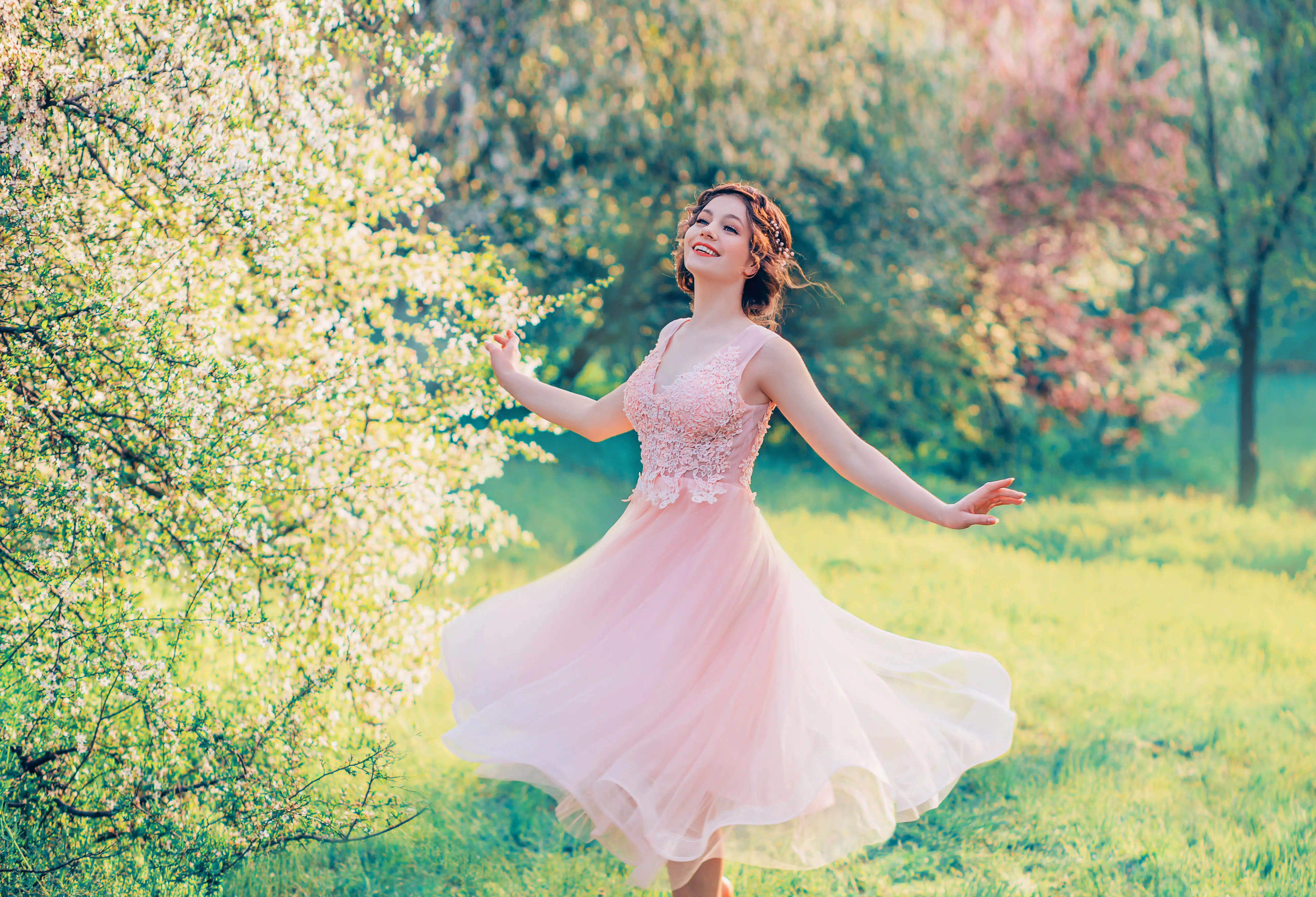
“Spring” by William Blake
Sound the flute!
Now it’s mute!
Birds delight,
Day and night,
Nightingale,
In the dale,
Lark in sky,—
Merrily,
Merrily, merrily to welcome in the year.
Little boy,
Full of joy;
Little girl,
Sweet and small;
Cock does crow,
So do you;
Merry voice,
Infant noise;
Merrily, merrily to welcome in the year.
Little lamb,
Here I am;
Come and lick
My white neck;
Let me pull
Your soft wool;
Let me kiss
Your soft face;
Merrily, merrily we welcome in the year.
“I’d Love to be a Fairy’s Child” by Robert Graves
Children born of fairy stock
Never need for shirt or frock,
Never want for food or fire,
Always get their heart’s desire:
Jingle pockets full of gold,
Marry when they’re seven years old.
Every fairy child may keep
Two strong ponies and ten sheep;
All have houses, each his own,
Built of brick or granite stone;
They live on cherries, they run wild—
I’d love to be a Fairy’s child.
“The Toys” by Coventry Patmore
My little Son, who look’d from thoughtful eyes
And moved and spoke in quiet grown-up wise,
Having my law the seventh time disobey’d,
I struck him, and dismiss’d
With hard words and unkiss’d,
His Mother, who was patient, being dead.
Then, fearing lest his grief should hinder sleep,
I visited his bed,
But found him slumbering deep,
With darken’d eyelids, and their lashes yet
From his late sobbing wet.
And I, with moan,
Kissing away his tears, left others of my own;
For, on a table drawn beside his head,
He had put, within his reach,
A box of counters and a red-vein’d stone,
A piece of glass abraded by the beach
And six or seven shells,
A bottle with bluebells
And two French copper coins, ranged there with careful art,
To comfort his sad heart.
So when that night I pray’d
To God, I wept, and said:
Ah, when at last we lie with tranced breath,
Not vexing Thee in death,
And Thou rememberest of what toys
We made our joys,
How weakly understood
Thy great commanded good,
Then, fatherly not less
Than I whom Thou hast moulded from the clay,
Thou’lt leave Thy wrath, and say,
“I will be sorry for their childishness.”
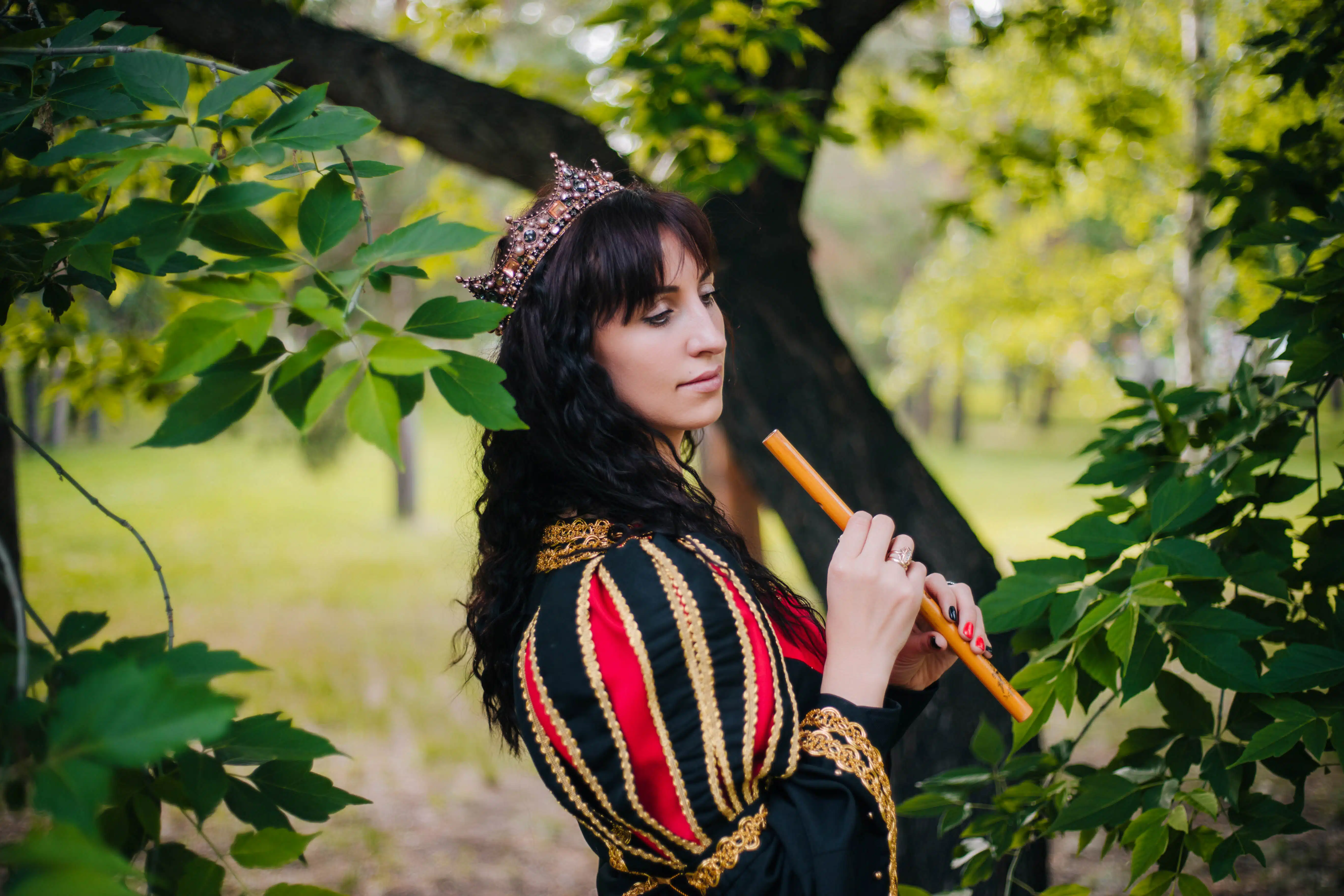
“Reeds Of Innocence” by William Blake
Piping down the valleys wild,
Piping songs of pleasant glee,
On a cloud I saw a child,
And he laughing said to me:
‘Pipe a song about a Lamb!’
So I piped with merry cheer.
‘Piper, pipe that song again;’
So I piped: he wept to hear.
‘Drop thy pipe, thy happy pipe;
Sing thy songs of happy cheer!’
So I sung the same again,
While he wept with joy to hear.
‘Piper, sit thee down and write
In a book that all may read.’
So he vanish’d from my sight;
And I pluck’d a hollow reed,
And I made a rural pen,
And I stain’d the water clear,
And I wrote my happy songs
Every child may joy to hear.
“Innocent Child And Snow-White Flower” by William Cullen Bryant
Innocent child and snow-white flower!
Well are ye paired in your opening hour.
Thus should the pure and the lovely meet,
Stainless with stainless, and sweet with sweet.
White as those leaves, just blown apart,
Are the folds of thy own young heart;
Guilty passion and cankering care
Never have left their traces there.
Artless one! though thou gazest now
O’er the white blossom with earnest brow,
Soon will it tire thy childish eye;
Fair as it is, thou wilt throw it by.
Throw it aside in thy weary hour,
Throw to the ground the fair white flower;
Yet, as thy tender years depart,
Keep that white and innocent heart.
“Envoi” by Walter De La Mare
Child, do you love the flower
Ashine with colour and dew
Lighting its transient hour?
So I love you.
The lambs in the mead are at play,
‘Neath a hurdle the shepherd’s asleep;
From height to height of the day
The sunbeams sweep.
Evening will come. And alone
The dreamer the dark will beguile;
All the world will be gone
For a dream’s brief while.
Then I shall be old; and away:
And you, with sad joy in your eyes,
Will brood over children at play
With as loveful surmise.
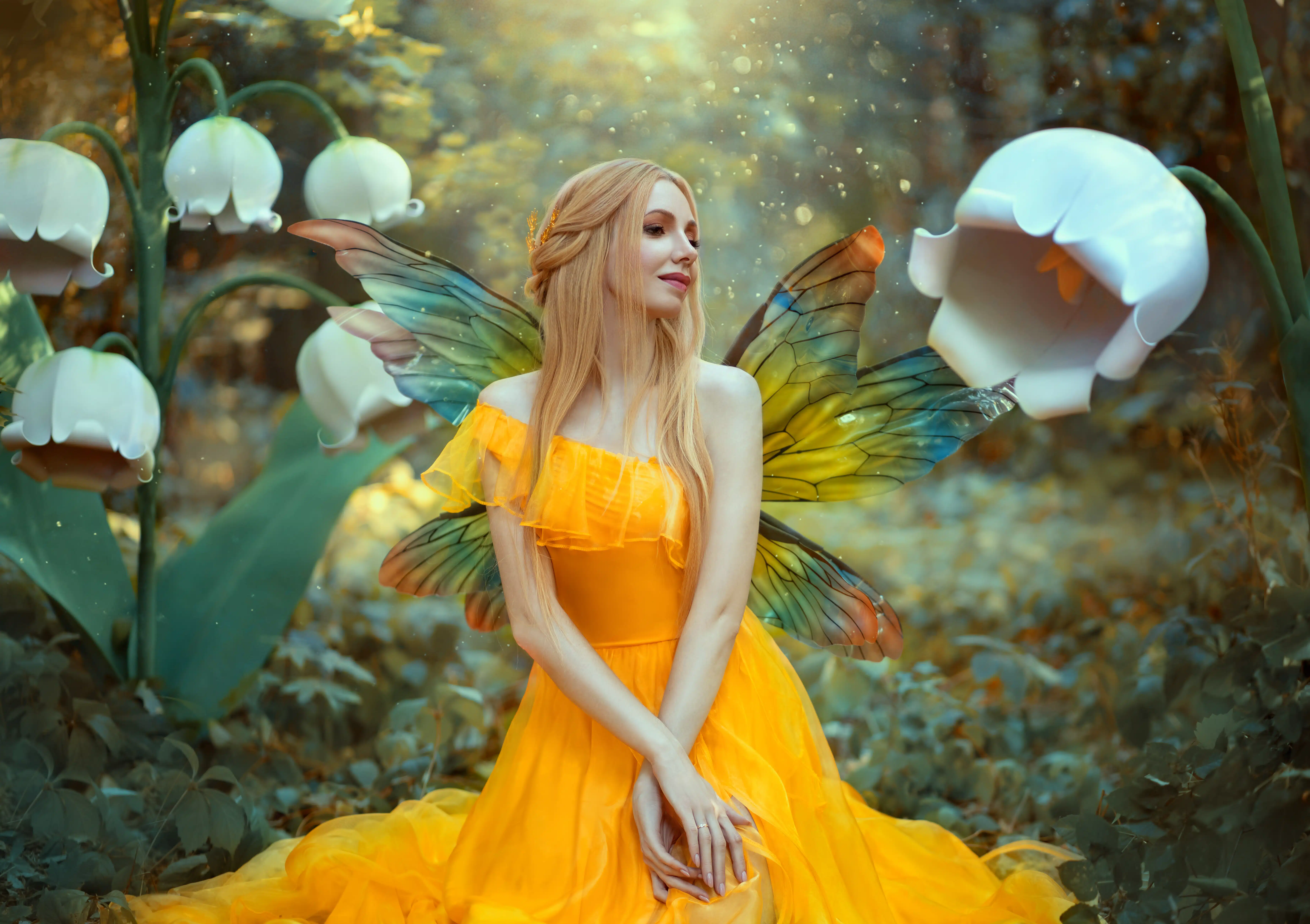
“To A Butterfly” by William Wordsworth
Stay near me, do not take thy flight!
A little longer stay in sight!
Much converse do I find I thee,
Historian of my infancy!
Float near me; do not yet depart!
Dead times revive in thee:
Thou bring’st, gay creature as thou art!
A solemn image to my heart,
My father’s family!
Oh! pleasant, pleasant were the days,
The time, when, in our childish plays,
My sister Emmeline and I
Together chased the butterfly!
A very hunter did I rush
Upon the prey: with leaps and spring
I followed on from brake to bush;
But she, God love her, feared to brush
The dust from off its wings.
“A Child’s Prayer” by Siegfried Sassoon
For Morn, my dome of blue,
For Meadows, green and gay,
And Birds who love the twilight of the leaves,
Let Jesus keep me joyful when I pray.
For the big Bees that hum
And hide in bells of flowers;
For the winding roads that come
To Evening’s holy door,
May Jesus bring me grateful to his arms,
And guard my innocence for evermore.
Poems About Innocence and Experience
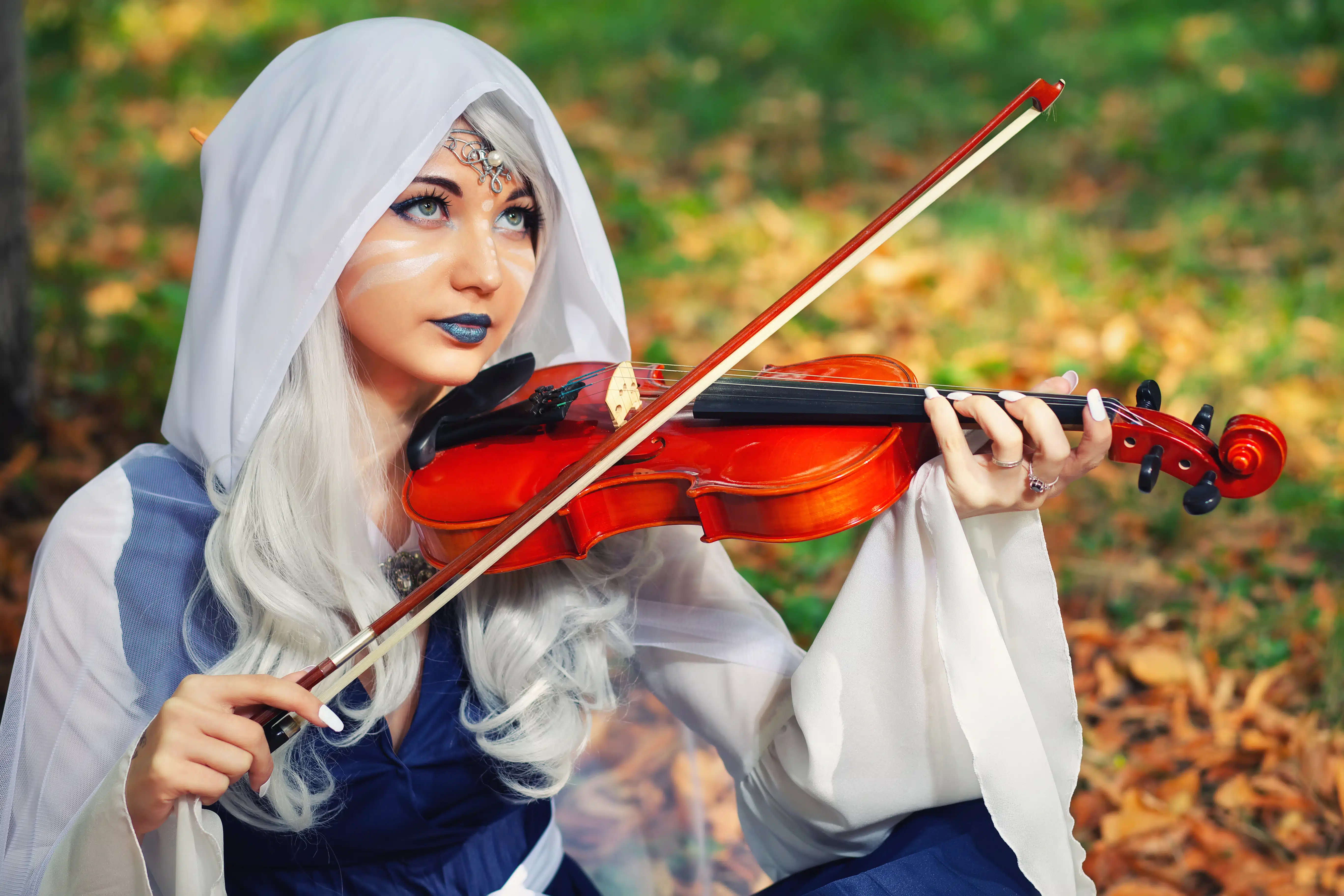
“Laughing Song” by William Blake
When the green woods laugh with the voice of joy,
And the dimpling stream runs laughing by;
When the air does laugh with our merry wit,
And the green hill laughs with the noise of it;
when the meadows laugh with lively green,
And the grasshopper laughs in the merry scene,
When Mary and Susan and Emily
With their sweet round mouths sing “Ha, ha he!”
When the painted birds laugh in the shade,
Where our table with cherries and nuts is spread:
Come live, and be merry, and join with me,
To sing the sweet chorus of “Ha, ha, he!”
“On Another’s Sorrow” by William Blake
Can I see another’s woe,
And not be in sorrow too?
Can I see another’s grief,
And not seek for kind relief?
Can I see a falling tear,
And not feel my sorrow’s share?
Can a father see his child
Weep, nor be with sorrow filled?
Can a mother sit and hear
An infant groan, an infant fear?
No, no! never can it be!
Never, never can it be!
And can He who smiles on all
Hear the wren with sorrows small,
Hear the small bird’s grief and care,
Hear the woes that infants bear—
And not sit beside the nest,
Pouring pity in their breast,
And not sit the cradle near,
Weeping tear on infant’s tear?
And not sit both night and day,
Wiping all our tears away?
O no! never can it be!
Never, never can it be!
He doth give His joy to all:
He becomes an infant small,
He becomes a man of woe,
He doth feel the sorrow too.
Think not thou canst sigh a sigh,
And thy Maker is not by:
Think not thou canst weep a tear,
And thy Maker is not near.
O He gives to us His joy,
That our grief He may destroy:
Till our grief is fled and gone
He doth sit by us and moan.
“I Remember, I Remember” by Thomas Hood
I remember, I remember,
The house where I was born,
The little window where the sun
Came peeping in at morn;
He never came a wink too soon,
Nor brought too long a day,
But now, I often wish the night
Had borne my breath away!
I remember, I remember,
The roses, red and white,
The vi’lets, and the lily-cups,
Those flowers made of light!
The lilacs where the robin built,
And where my brother set
The laburnum on his birthday,—
The tree is living yet!
I remember, I remember,
Where I was used to swing,
And thought the air must rush as fresh
To swallows on the wing;
My spirit flew in feathers then,
That is so heavy now,
And summer pools could hardly cool
The fever on my brow!
I remember, I remember,
The fir trees dark and high;
I used to think their slender tops
Were close against the sky:
It was a childish ignorance,
But now ’tis little joy
To know I’m farther off from heav’n
Than when I was a boy.
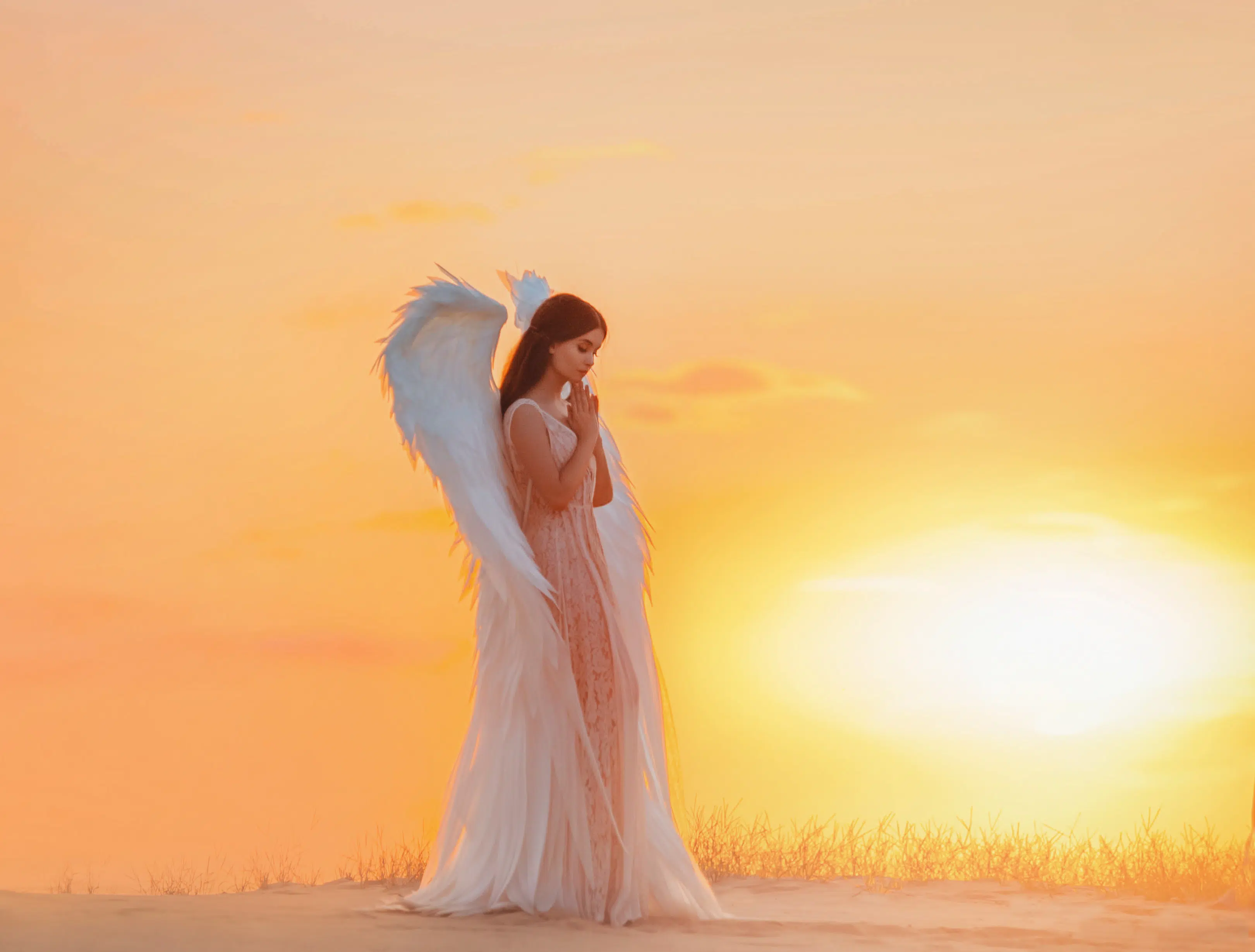
“The Divine Image” by William Blake
To Mercy, Pity, Peace, and Love
All pray in their distress;
And to these virtues of delight
Return their thankfulness.
For Mercy, Pity, Peace, and Love
Is God, our father dear,
And Mercy, Pity, Peace, and Love
Is Man, his child and care.
For Mercy has a human heart,
Pity a human face,
And Love, the human form divine,
And Peace, the human dress.
Then every man, of every clime,
That prays in his distress,
Prays to the human form divine,
Love, Mercy, Pity, Peace.
And all must love the human form,
In heathen, Turk, or Jew;
Where Mercy, Love, and Pity dwell
There God is dwelling too.
“London” by William Blake
I wander thro’ each charter’d street,
Near where the charter’d Thames doth flow,
And mark in every face I meet
Marks of weakness, marks of woe.
In every cry of every man,
In every infant’s cry of fear,
In every voice, in every ban,
The mind-forg’d manacles I hear
How the chimney-sweepers cry
Every blackening church appalls.
And the helpless soldiers sigh,
Runs in blood down palace walls
But most thro’ midnight street I hear
How the youthful harlots curse
Blasts the new-born infants tear
And Wights with plagues the marriage hearse
“The Voice of the Ancient Bard” by William Blake
Youth of delight! come hither
And see the opening morn,
Image of Truth new-born.
Doubt is fled, and clouds of reason,
Dark disputes and artful teazing.
Folly is an endless maze;
Tangled roots perplex her ways;
How many have fallen there!
They stumble all night over bones of the dead;
And feel—they know not what but care;
And wish to lead others, when they should be led.
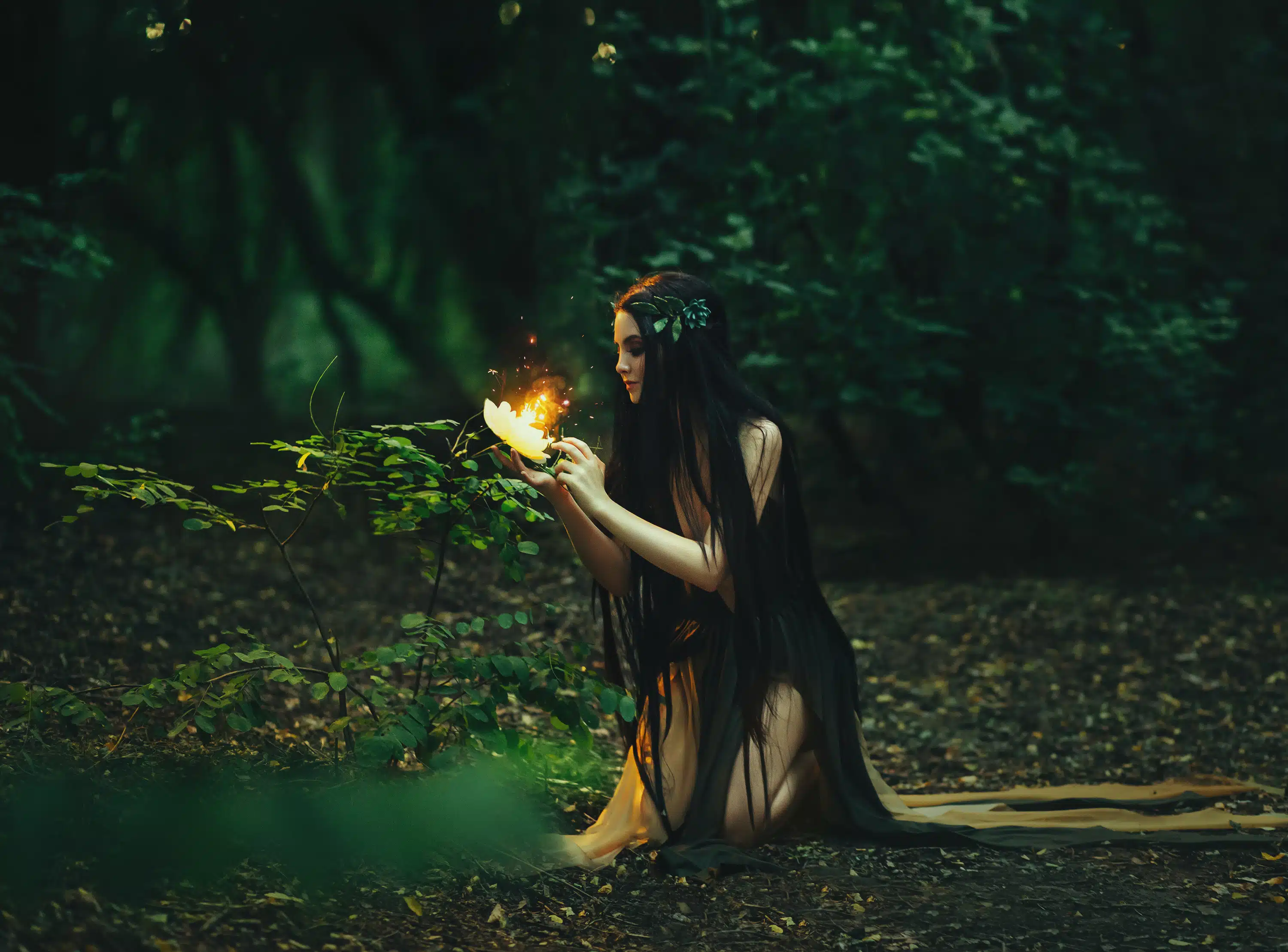
“Night” by William Blake
The sun descending in the west,
The evening star does shine;
The birds are silent in their nest,
And I must seek for mine.
The moon, like a flower,
In heaven’s high bower,
With silent delight
Sits and smiles on the night.
Farewell, green fields and happy groves,
Where flocks have took delight.
Where lambs have nibbled, silent moves
The feet of angels bright;
Unseen they pour blessing,
And joy without ceasing,
On each bud and blossom,
And each sleeping bosom.
They look in every thoughtless nest,
Where birds are covered warm;
They visit caves of every beast,
To keep them all from harm.
If they see any weeping
That should have been sleeping,
They pour sleep on their head,
And sit down by their bed.
When wolves and tigers howl for prey,
They pitying stand and weep;
Seeking to drive their thirst away,
And keep them from the sheep.
But if they rush dreadful,
The angels, most heedful,
Receive each mild spirit,
New worlds to inherit.
And there the lion’s ruddy eyes
Shall flow with tears of gold,
And pitying the tender cries,
And walking round the fold,
Saying, ‘Wrath, by His meekness,
And, by His health, sickness
Is driven away
From our immortal day.
‘And now beside thee, bleating lamb,
I can lie down and sleep;
Or think on Him who bore thy name,
Graze after thee and weep.
For, washed in life’s river,
My bright mane for ever
Shall shine like the gold
As I guard o’er the fold.’
“The Angel” by William Blake
I dreamt a dream! What can it mean?
And that I was a maiden Queen
Guarded by an Angel mild:
Witless woe was ne’er beguiled!
And I wept both night and day,
And he wiped my tears away;
And I wept both day and night,
And hid from him my heart’s delight.
So he took his wings, and fled;
Then the morn blushed rosy red.
I dried my tears, and armed my fears
With ten thousand shields and spears.
Soon my Angel came again;
I was armed, he came in vain;
For the time of youth was fled,
And grey hairs were on my head.
“The Clod and the Pebble” by William Blake
Love seeketh not Itself to please,
Nor for itself hath any care;
But for another gives its ease.
And builds a Heaven in Hells despair.
So sung a little Clod of Clay
Trodden with the cattles’ feet:
But a Pebble of the brook,
Warbled out these metres meet.
Love seeketh only Self to please,
To bind another to Its delight;
Joys in another’s loss of ease.
And builds a Hell in Heavens despite.
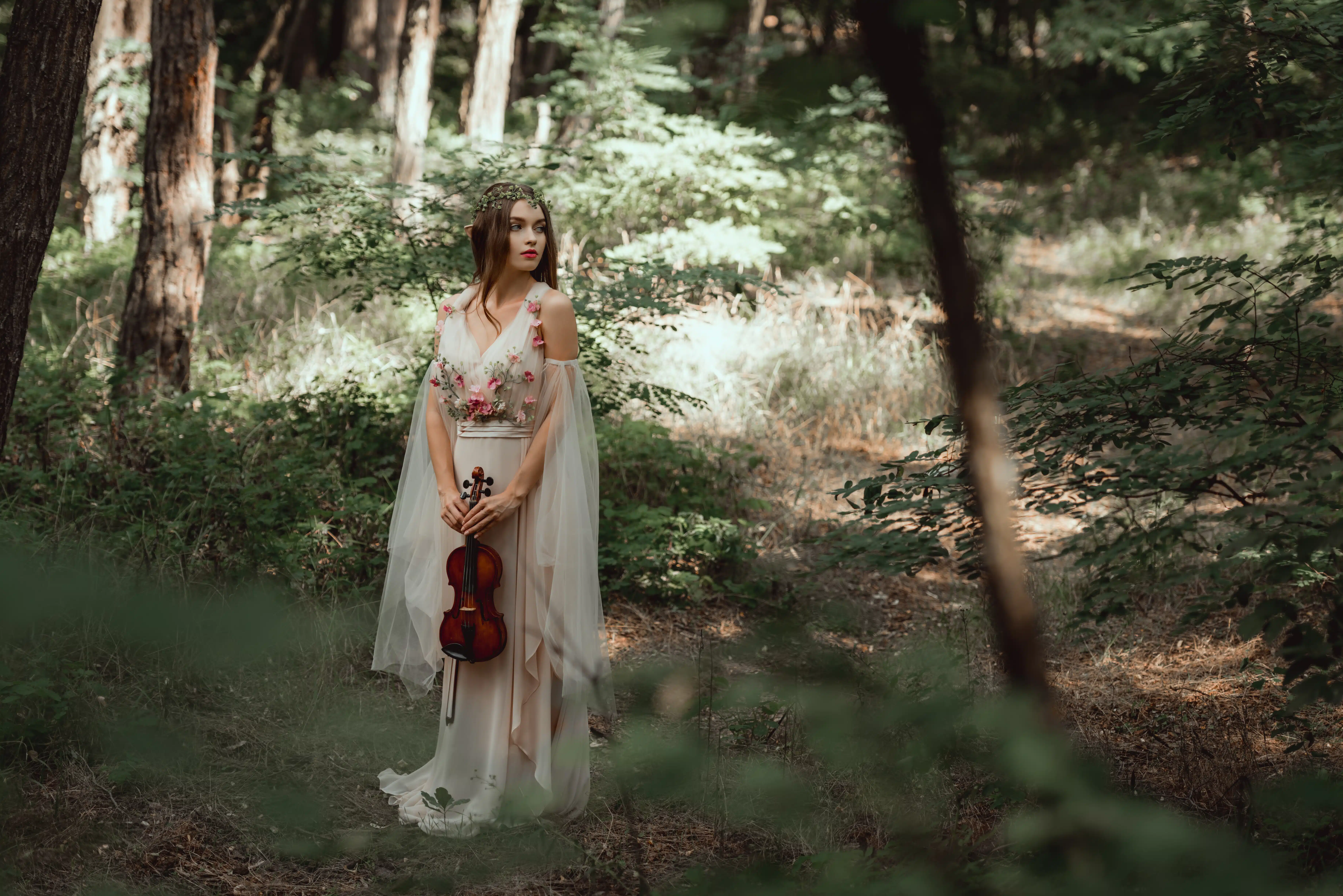
“Introduction To Songs Of Experience” by William Blake
Hear the voice of the Bard,
Who present, past, and future, sees;
Whose ears have heard
The Holy Word
That walked among the ancient trees;
Calling the lapséd soul,
And weeping in the evening dew;
That might control
The starry pole,
And fallen, fallen light renew!
‘O Earth, O Earth, return!
Arise from out the dewy grass!
Night is worn,
And the morn
Rises from the slumbrous mass.
‘Turn away no more;
Why wilt thou turn away?
The starry floor,
The watery shore,
Is given thee till the break of day.’
“Keep Innocency” by Walter De La Mare
Like an old battle, youth is wild
With bugle and spear, and counter cry,
Fanfare and drummery, yet a child
Dreaming of that sweet chivalry,
The piercing terror cannot see.
He, with a mild and serious eye
Along the azure of the years,
Sees the sweet pomp sweep hurtling by;
But he sees not death’s blood and tears,
Sees not the plunging of the spears.
And all the strident horror of
Horse and rider, in red defeat,
Is only music fine enough
To lull him into slumber sweet
In fields where ewe and lambkin bleat.
O, if with such simplicity
Himself take arms and suffer war;
With beams his targe shall gilded be,
Though in the thickening gloom be far
The steadfast light of any star!
Though hoarse War’s eagle on him perch,
Quickened with guilty lightnings – there
It shall in vain for terror search,
Where a child’s eyes beneath bloody hair
Gaze purely through the dingy air.
And when the wheeling rout is spent,
Though in the heaps of slain he lie;
Or lonely in his last content;
Quenchless shall burn in secrecy
The flame Death knows his victors by.
“Anecdotes for Fathers” by William Wordsworth
I have a boy of five years old;
His face is fair and fresh to see;
His limbs are cast in beauty’s mould,
And dearly he loves me.
One morn we strolled on our dry walk,
Our quiet home all full in view,
And held such intermitted talk
As we are wont to do.
My thoughts on former pleasures ran;
I thought of Kilve’s delightful shore,
Our pleasant home when spring began,
A long, long year before.
A day it was when I could bear
Some fond regrets to entertain;
With so much happiness to spare,
I could not feel a pain.
The green earth echoed to the feet
Of lambs that bounded through the glade,
From shade to sunshine, and as fleet
From sunshine back to shade.
Birds warbled round me — and each trace
of inward sadness had its charm;
Kilve, thought I, was a favored place,
And so is Liswyn farm.
My boy beside me tripped, so slim
And graceful in his rustic dress!
And, as we talked, I questioned him,
In very idleness.
Now tell me, had you rather be,
I said, and took him by the arm,
On Kilve’s smooth shore, by the green sea,
Or here at Liswyn farm?
In careless mood he looked at me,
While still I held him by the arm,
And said, At Kilve I’d rather be
Than here at Liswyn farm.
Now, little Edward, say why so:
My little Edward, tell me why. —
I cannot tell, I do not know. —
Why, this is strange, said I;
For, here are woods, hills smooth and warm:
There surely must some reason be
Why you would change sweet Liswyn farm
For Kilve by the green sea.
At this, my boy hung down his head,
He blushed with shame, nor made reply;
And three times to the child I said,
Why, Edward, tell me why?
His head he raised — there was in sight,
It caught his eye, he saw it plain —
Upon the house-top, glittering bright,
A broad and gilded vane.
Then did the boy his tongue unlock,
And eased his mind with this reply:
At Kilve there was no weather-cock;
And that’s the reason why.
O dearest, dearest boy! my heart
For better lore would seldom yearn,
Could I but teach the hundredth part
Of what from thee I learn.
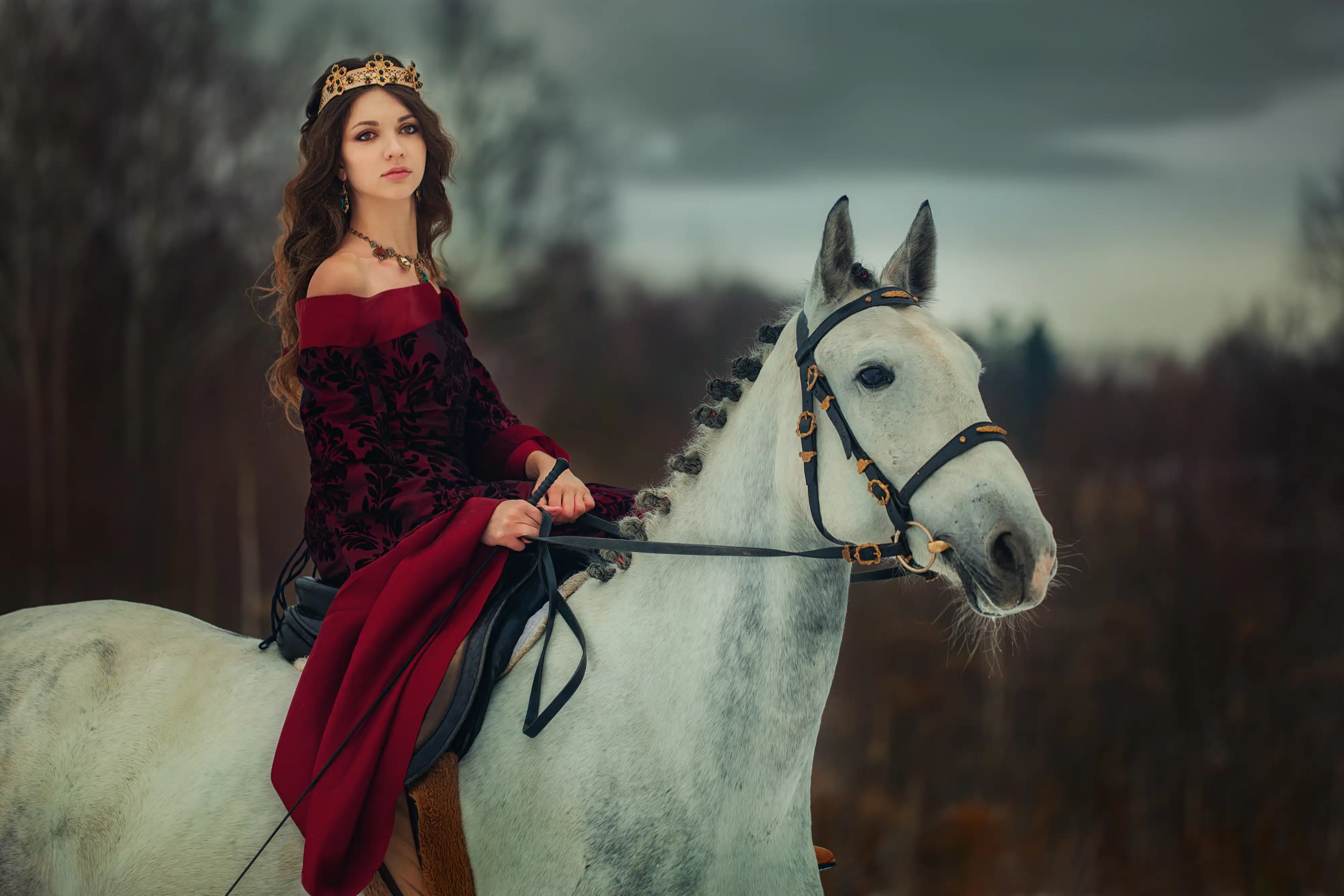
“The Retreat” by Henry Vaughan
Happy those early days! when I
Shined in my angel infancy.
Before I understood this place
Appointed for my second race,
Or taught my soul to fancy aught
But a white, celestial thought;
When yet I had not walked above
A mile or two from my first love,
And looking back, at that short space,
Could see a glimpse of His bright face;
When on some gilded cloud or flower
My gazing soul would dwell an hour,
And in those weaker glories spy
Some shadows of eternity;
Before I taught my tongue to wound
My conscience with a sinful sound,
Or had the black art to dispense
A several sin to every sense,
But felt through all this fleshly dress
Bright shoots of everlastingness.
O, how I long to travel back,
And tread again that ancient track!
That I might once more reach that plain
Where first I left my glorious train,
From whence th’ enlightened spirit sees
That shady city of palm trees.
But, ah! my soul with too much stay
Is drunk, and staggers in the way.
Some men a forward motion love;
But I by backward steps would move,
And when this dust falls to the urn,
In that state I came, return.
“Ode on Solitude” by Alexander Pope
Happy the man, whose wish and care
A few paternal acres bound,
Content to breathe his native air,
In his own ground.
Whose heards with milk, whose fields with bread,
Whose flocks supply him with attire,
Whose trees in summer yield him shade,
In winter fire.
Blest! who can unconcern’dly find
Hours, days, and years slide soft away,
In health of body, peace of mind,
Quiet by day,
Sound sleep by night; study and ease
Together mix’d; sweet recreation,
And innocence, which most does please,
With meditation.
Thus let me live, unseen, unknown;
Thus unlamented let me dye;
Steal from the world, and not a stone
Tell where I lye.
“Love and harmony combine” by William Blake
Love and harmony combine,
And round our souls entwine
While thy branches mix with mine,
And our roots together join.
Joys upon our branches sit,
Chirping loud and singing sweet;
Like gentle streams beneath our feet
Innocence and virtue meet.
Thou the golden fruit dost bear,
I am clad in flowers fair;
Thy sweet boughs perfume the air,
And the turtle buildeth there.
There she sits and feeds her young,
Sweet I hear her mournful song;
And thy lovely leaves among,
There is love, I hear his tongue.
There his charming nest doth lay,
There he sleeps the night away;
There he sports along the day,
And doth among our branches play.
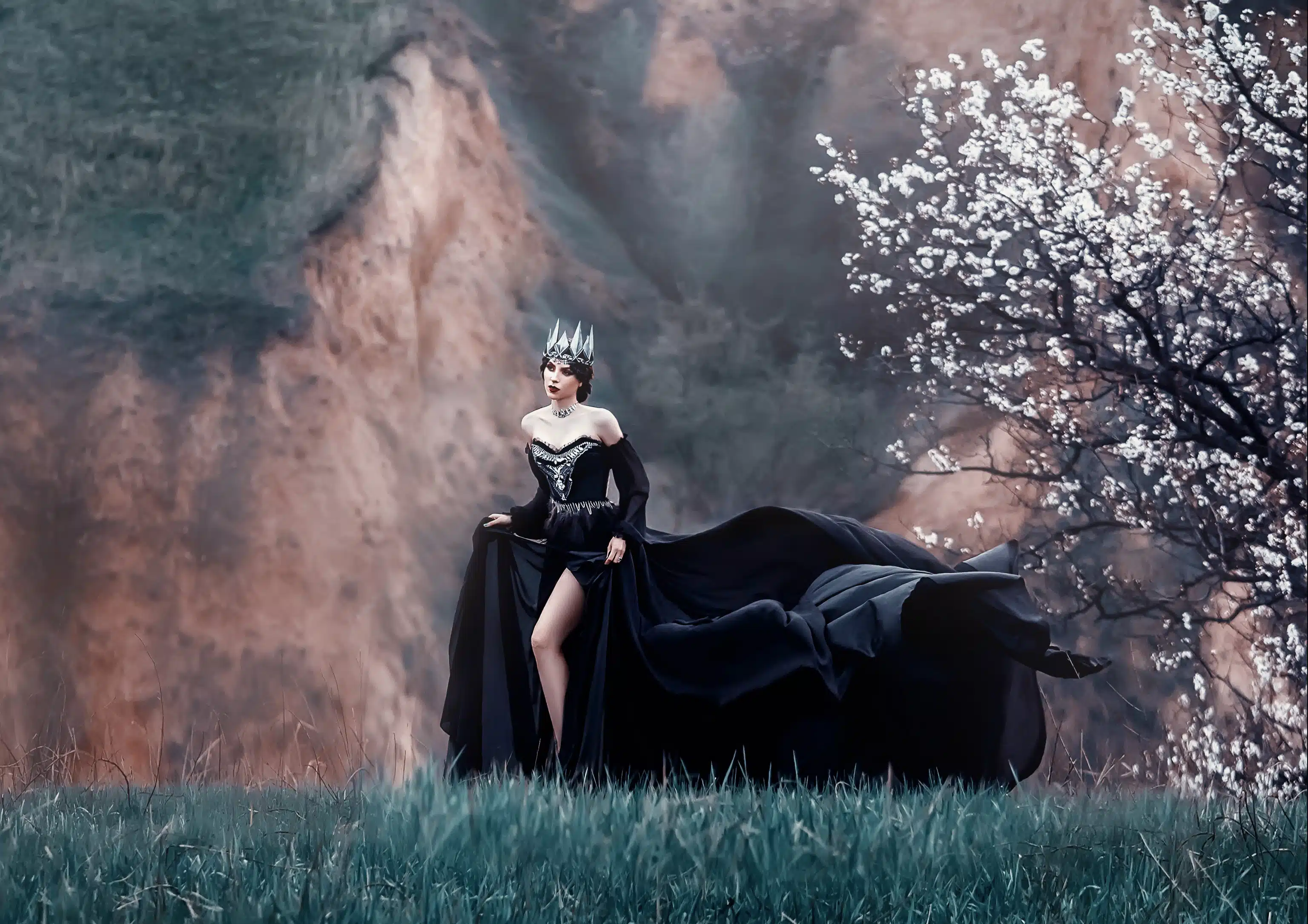
“The Queen’s Men” by Rudyard Kipling
Valour and Innocence
Have latterly gone hence
To certain death by certain shame attended.
Envy, ah! even to tears!
The fortune of their years
Which, though so few, yet so divinely ended.
Scarce had they lifted up
Life’s full and fiery cup,
Than they had set it down untouched before them.
Before their day arose
They beckoned it to close,
Close in confusion and destruction o’er them.
They did not stay to ask
What prize should crown their task,
Well sure that prize was such as no man strives for;
But passed into eclipse,
Her kiss upon their lips,
Even Belphoebe’s, whom they gave their lives for!
“Ballade at Thirty-five” by Dorothy Parker
This, no song of an ingénue,
This, no ballad of innocence;
This, the rhyme of a lady who
Followed ever her natural bents.
This, a solo of sapience,
This, a chantey of sophistry,
This, the sum of experiments, —
I loved them until they loved me.
Decked in garments of sable hue,
Daubed with ashes of myriad Lents,
Wearing shower bouquets of rue,
Walk I ever in penitence.
Oft I roam, as my heart repents,
Through God’s acre of memory,
Marking stones, in my reverence,
“I loved them until they loved me.”
Pictures pass me in long review,–
Marching columns of dead events.
I was tender, and, often, true;
Ever a prey to coincidence.
Always knew I the consequence;
Always saw what the end would be.
We’re as Nature has made us — hence
I loved them until they loved me.
“Innocence” by Thomas Traherne
I
But that which most I wonder at, which most
I did esteem my bliss, which most I boast,
And ever shall enjoy, is that within
I felt no stain nor spot of sin.
No darkness then did overshade,
But all within was pure and bright,
No guilt did crush nor fear invade,
But all my soul was full of light.
A joyful sense and purity
Is all I can remember,
The very night to me was bright,
‘Twas Summer in December.
II
A serious meditation did employ
My soul within, which taken up with joy
Did seem no outward thing to note, but fly
All objects that do feed the eye,
While it those very objects did
Admire and prize and praise and love,
Which in their glory most are hid,
Which presence only doth remove.
Their constant daily presence I
Rejoicing at, did see,
And that which takes them from the eye
Of others offered them to me.
III
No inward inclination did I feel
To avarice or pride; my soul did kneel
In admiration all the day. No lust, nor strife,
Polluted then my infant life.
No fraud nor anger in me mov’d
No malice, jealousy, or spite;
All that I saw I truly lov’d:
Contentment only and delight
Were in my soul. O Heav’n! what bliss
Did I enjoy and feel!
What powerful delight did this
Inspire! for this I daily kneel.
IV
Whether it be that Nature is so pure,
And custom only vicious; or that sure
God did by miracle the guilt remove,
And made my soul to feel his Love
So early: or that ’twas one day,
Wherein this happiness I found,
Whose strength and brightness so do ray,
That still it seems me to surround,
Whate’er it is, it is a Light
So endless unto me
That I a world of true delight
Did then, and to this day do see.
V
That prospect was the gate of Heaven, that day
The ancient Light of Eden did convey
Into my soul: I was an Adam there,
A little Adam in a sphere
Of joys! O there my ravisht sense
Was entertained in Paradise,
And had a sight of Innocence,
Which was beyond all bound and price.
An antepast of Heaven sure!
I on the Earth did reign,
Within, without me, all was pure:
I must become a child again.
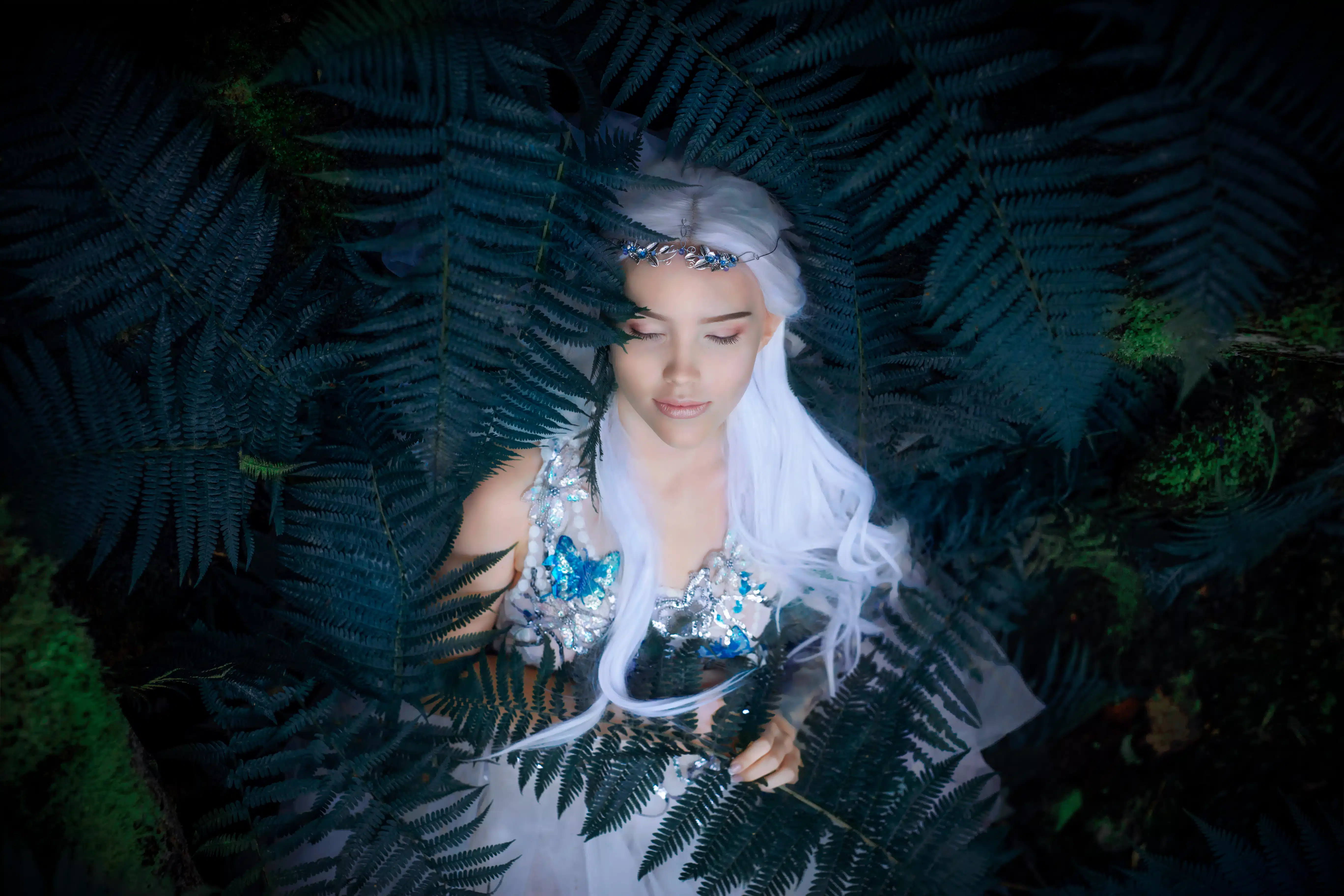
“A Dream” by William Blake
Once a dream did weave a shade
O’er my angel-guarded bed,
That an emmet lost its way
Where on grass methought I lay.
Troubled, wildered, and forlorn,
Dark, benighted, travel-worn,
Over many a tangled spray,
All heart-broke, I heard her say:
‘O my children! do they cry,
Do they hear their father sigh?
Now they look abroad to see,
Now return and weep for me.’
Pitying, I dropped a tear:
But I saw a glow-worm near,
Who replied, ‘What wailing wight
Calls the watchman of the night?’
‘I am set to light the ground,
While the beetle goes his round:
Follow now the beetle’s hum;
Little wanderer, hie thee home!’
“Spring” by Gerard Manley Hopkins
Nothing is so beautiful as Spring –
When weeds, in wheels, shoot long and lovely and lush;
Thrush’s eggs look little low heavens, and thrush
Through the echoing timber does so rinse and wring
The ear, it strikes like lightnings to hear him sing;
The glassy peartree leaves and blooms, they brush
The descending blue; that blue is all in a rush
With richness; the racing lambs too have fair their fling.
What is all this juice and all this joy?
A strain of the earth’s sweet being in the beginning
In Eden garden. – Have, get, before it cloy,
Before it cloud, Christ, lord, and sour with sinning,
Innocent mind and Mayday in girl and boy,
Most, O maid’s child, thy choice and worthy the winning.
“To Louise” by Paul Laurence Dunbar
Oh, the poets may sing of their Lady Irenes,
And may rave in their rhymes about wonderful queens;
But I throw my poetical wings to the breeze,
And soar in a song to my Lady Louise.
A sweet little maid, who is dearer, I ween,
Than any fair duchess, or even a queen.
When speaking of her I can’t plod in my prose,
For she’s the wee lassie who gave me a rose.
Since poets, from seeing a lady’s lip curled,
Have written fair verse that has sweetened the world;
Why, then, should not I give the space of an hour
To making a song in return for a flower?
I have found in my life—it has not been so long—
There are too few of flowers—too little of song.
So out of that blossom, this lay of mine grows,
For the dear little lady who gave me the rose.
I thank God for innocence, dearer than Art,
That lights on a by-way which leads to the heart,
And led by an impulse no less than divine,
Walks into the temple and sits at the shrine.
I would rather pluck daisies that grow in the wild,
Or take one simple rose from the hand of a child,
Than to breathe the rich fragrance of flowers that bide
In the gardens of luxury, passion, and pride.
I know not, my wee one, how came you to know
Which way to my heart was the right way to go;
Unless in your purity, soul-clean and clear,
God whispers his messages into your ear.
You have now had my song, let me end with a prayer
That your life may be always sweet, happy, and fair;
That your joys may be many, and absent your woes,
O dear little lady who gave me the rose!
Poems on Innocence of a Girl
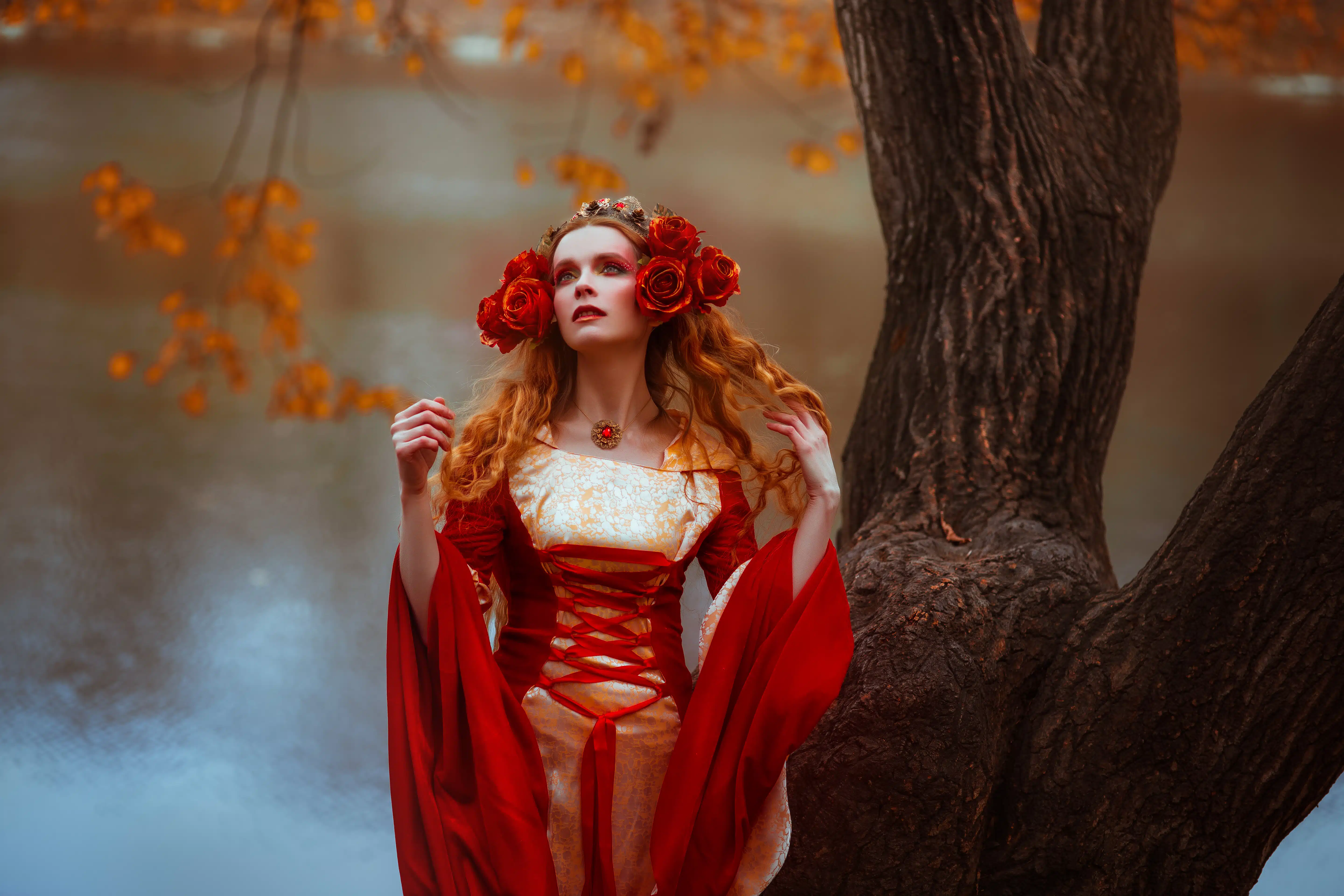
“The Sick Rose” by William Blake
O Rose thou art sick.
The invisible worm,
That flies in the night
In the howling storm:
Has found out thy bed
Of crimson joy:
And his dark secret love
Does thy life destroy.
“The Little Girl Lost” by William Blake
In futurity
I prophesy
That the earth from sleep
(Grave the sentence deep)
Shall arise, and seek
For her Maker meek;
And the desert wild
Become a garden mild.
In the southern clime,
Where the summer’s prime
Never fades away,
Lovely Lyca lay.
Seven summers old
Lovely Lyca told.
She had wandered long,
Hearing wild birds’ song.
‘Sweet sleep, come to me,
Underneath this tree;
Do father, mother, weep?
Where can Lyca sleep?
‘Lost in desert wild
Is your little child.
How can Lyca sleep
If her mother weep?
‘If her heart does ache,
Then let Lyca wake;
If my mother sleep,
Lyca shall not weep.
‘Frowning, frowning night,
O’er this desert bright
Let thy moon arise,
While I close my eyes.’
Sleeping Lyca lay,
While the beasts of prey,
Come from caverns deep,
Viewed the maid asleep.
The kingly lion stood,
And the virgin viewed:
Then he gambolled round
O’er the hallowed ground.
Leopards, tigers, play
Round her as she lay;
While the lion old
Bowed his mane of gold,
And her bosom lick,
And upon her neck,
From his eyes of flame,
Ruby tears there came;
While the lioness
Loosed her slender dress,
And naked they conveyed
To caves the sleeping maid.
“The Little Girl Found” by William Blake
All the night in woe
Lyca’s parents go
Over valleys deep,
While the deserts weep.
Tired and woe-begone,
Hoarse with making moan,
Arm in arm, seven days
They traced the desert ways.
Seven nights they sleep
Among shadows deep,
And dream they see their child
Starved in desert wild.
Pale through pathless ways
The fancied image strays,
Famished, weeping, weak,
With hollow piteous shriek.
Rising from unrest,
The trembling woman pressed
With feet of weary woe;
She could no further go.
In his arms he bore
Her, armed with sorrow sore;
Till before their way
A couching lion lay.
Turning back was vain:
Soon his heavy mane
Bore them to the ground,
Then he stalked around,
Smelling to his prey;
But their fears allay
When he licks their hands,
And silent by them stands.
They look upon his eyes,
Filled with deep surprise;
And wondering behold
A spirit armed in gold.
On his head a crown,
On his shoulders down
Flowed his golden hair.
Gone was all their care.
‘Follow me,’ he said;
‘Weep not for the maid;
In my palace deep,
Lyca lies asleep.’
Then they followèd
Where the vision led,
And saw their sleeping child
Among tigers wild.
To this day they dwell
In a lonely dell,
Nor fear the wolvish howl
Nor the lion’s growl.

“Embers” by Sara Teasdale
I said, “My youth is gone
Like a fire beaten out by the rain,
That will never sway and sing
Or play with the wind again.”
I said, “It is no great sorrow
That quenched my youth in me,
But only little sorrows
Beating ceaselessly.”
I thought my youth was gone,
But you returned,
Like a flame at the call of the wind
It leaped and burned;
Threw off its ashen cloak,
And gowned anew
Gave itself like a bride
Once more to you.
Short Poems About Innocence
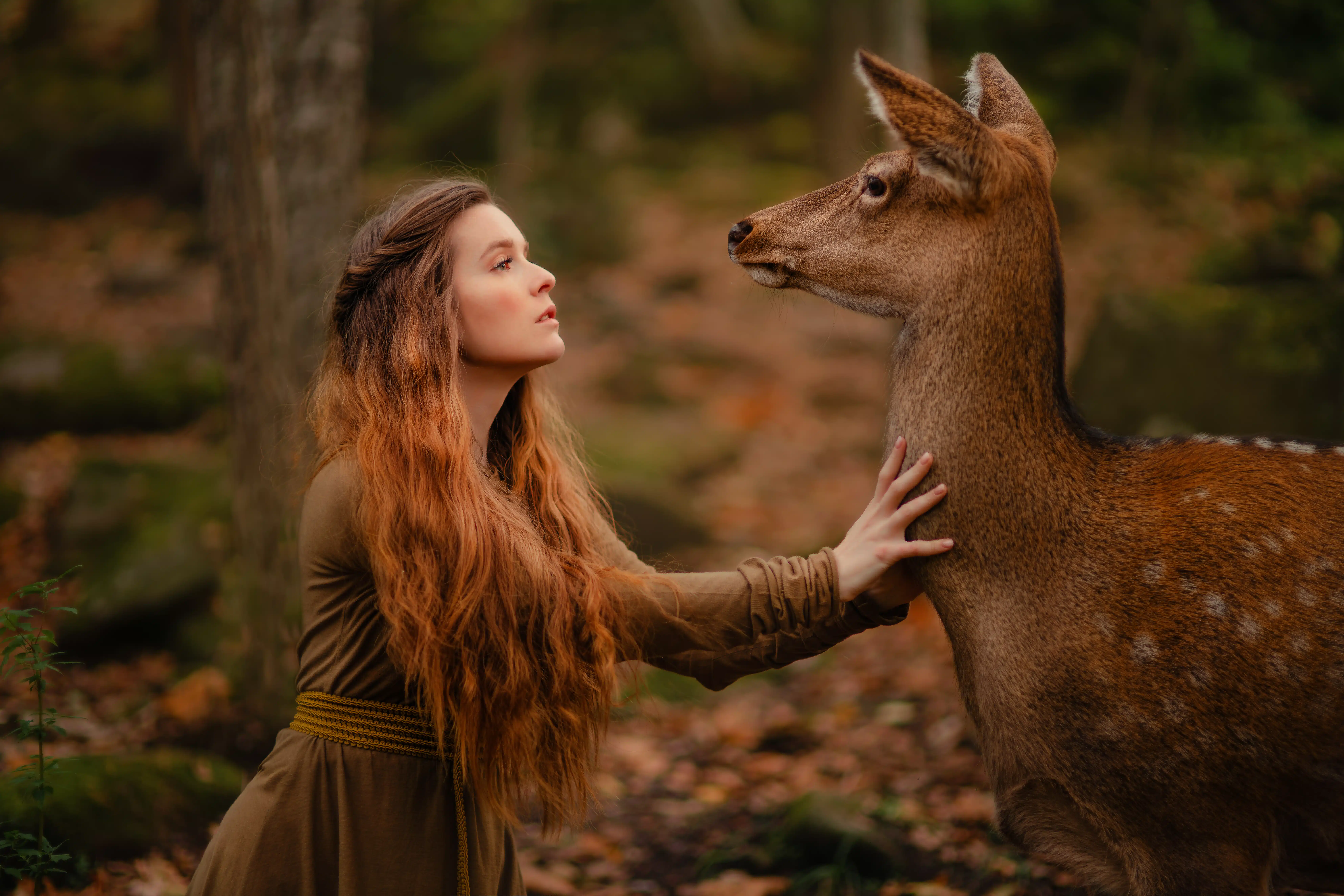
“The Shepherd” by William Blake
How sweet is the shepherd’s sweet lot!
From the morn to the evening he strays;
He shall follow his sheep all the day,
And his tongue shall be filled with praise.
For he hears the lambs’ innocent call,
And he hears the ewes’ tender reply;
He is watchful while they are in peace,
For they know when their shepherd is nigh.
“The Little Boy Lost” by William Blake
“Father, father, where are you going?
Oh do not walk so fast!
Speak, father, speak to your little boy,
Or else I shall be lost.”
The night was dark, no father was there,
The child was wet with dew;
The mire was deep, and the child did weep,
And away the vapour flew.
“The Little Boy Found” by William Blake
The little boy lost in the lonely fen,
Led by the wandering light,
Began to cry, but God, ever nigh,
Appeared like his father, in white.
He kissed the child, and by the hand led,
And to his mother brought,
Who in sorrow pale, through the lonely dale,
Her little boy weeping sought.
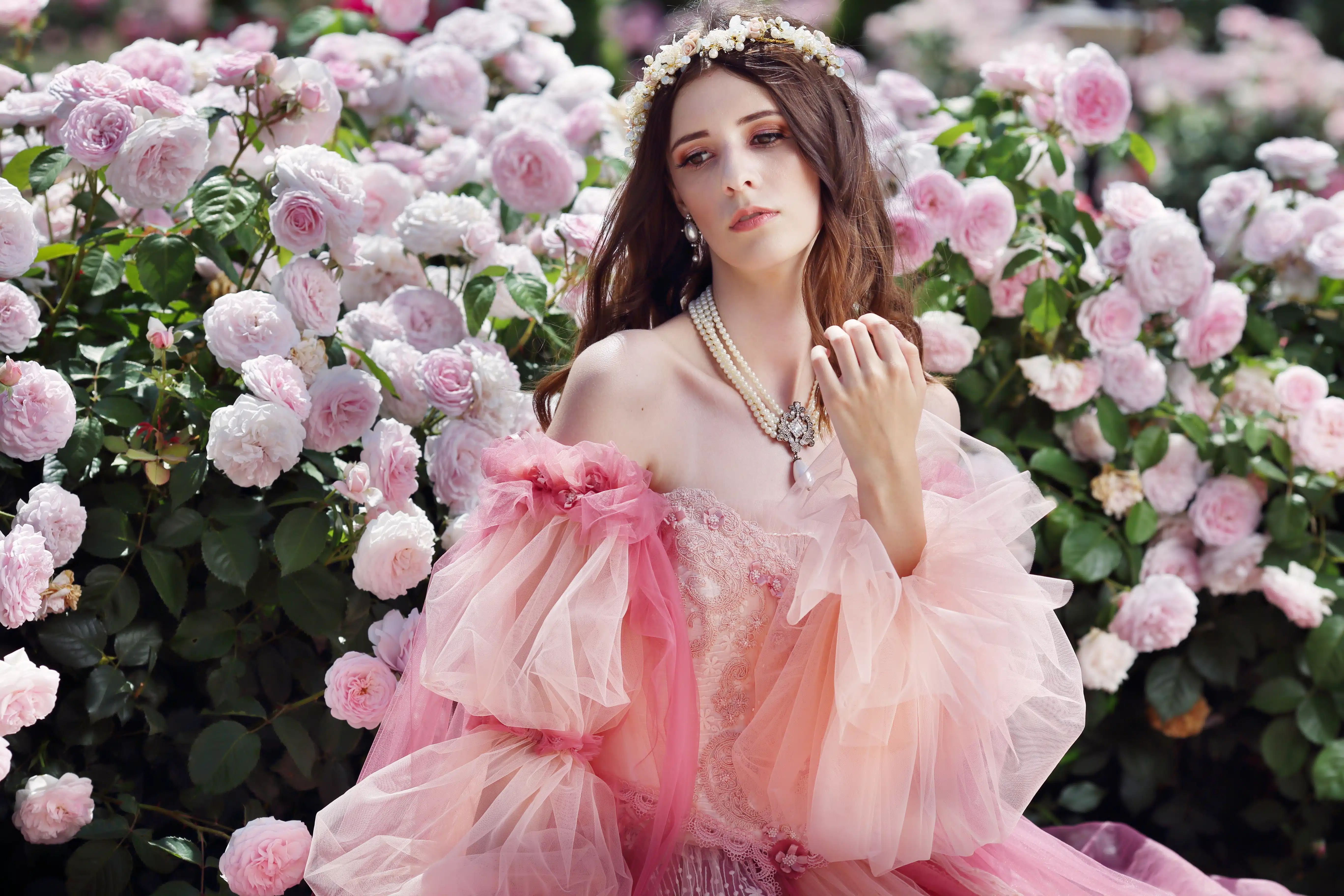
“The Blossom” by William Blake
Merry, merry sparrow!
Under leaves so green
A happy blossom
Sees you, swift as arrow,
Seek your cradle narrow,
Near my bosom.
Pretty, pretty robin!
Under leaves so green
A happy blossom
Hears you sobbing, sobbing,
Pretty, pretty robin,
Near my bosom.
“Infant Joy” by William Blake
I have no name
I am but two days old.—
What shall I call thee?
I happy am
Joy is my name,—
Sweet joy befall thee!
Pretty joy!
Sweet joy but two days old,
Sweet joy I call thee;
Thou dost smile.
I sing the while
Sweet joy befall thee.
“Discord In Childhood” by D. H. Lawrence
Outside the house an ash-tree hung its terrible whips,
And at night when the wind arose, the lash of the tree
Shrieked and slashed the wind, as a ship’s
Weird rigging in a storm shrieks hideously.
Within the house two voices arose in anger, a slender lash
Whistling delirious rage, and the dreadful sound
Of a thick lash booming and bruising, until it drowned
The other voice in a silence of blood, ‘neath the noise of the ash.
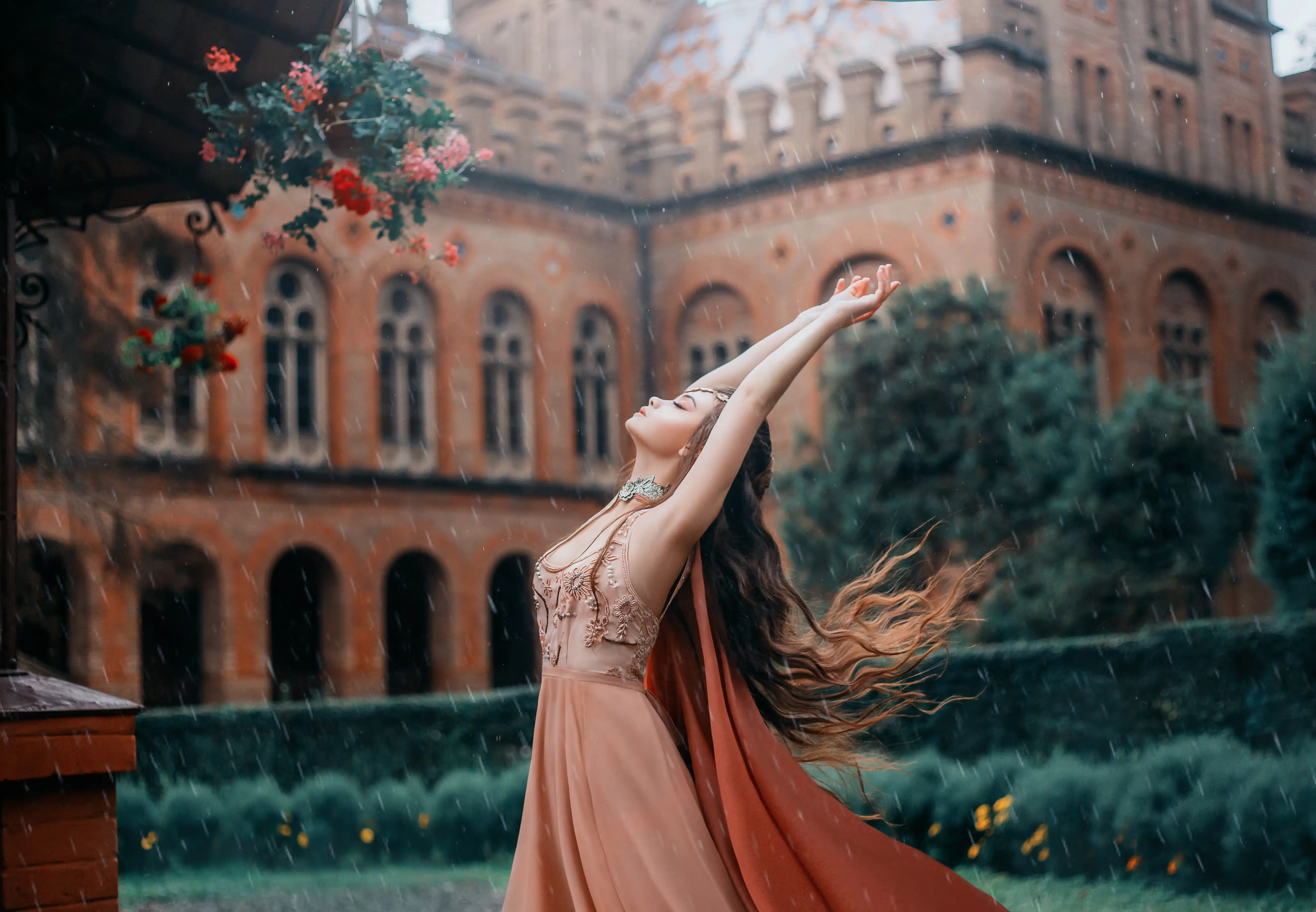
“My Heart Leaps Up When I Behold” by William Wordsworth
My heart leaps up when I behold
A rainbow in the sky:
So was it when my life began;
So is it now I am a man;
So be it when I shall grow old,
Or let me die!
The Child is father of the Man;
I could wish my days to be
Bound each to each by natural piety.
“Childhood Calls” by John Frederick Freeman
Come over, come over the deepening river,
Come over again the dark torrent of years,
Come over, come back where the green leaves quiver,
And the lilac still blooms and the grey sky clears.
Come, come back to the everlasting garden,
To that green heaven, and the blue heaven above.
Come back to the time when time brought no burden
And love was unconscious, knowing not love.
“Upon Lucy. Epig.” by Robert Herrick
Sound teeth has Lucy, pure as pearl, and small,
With mellow lips, and luscious therewithal.
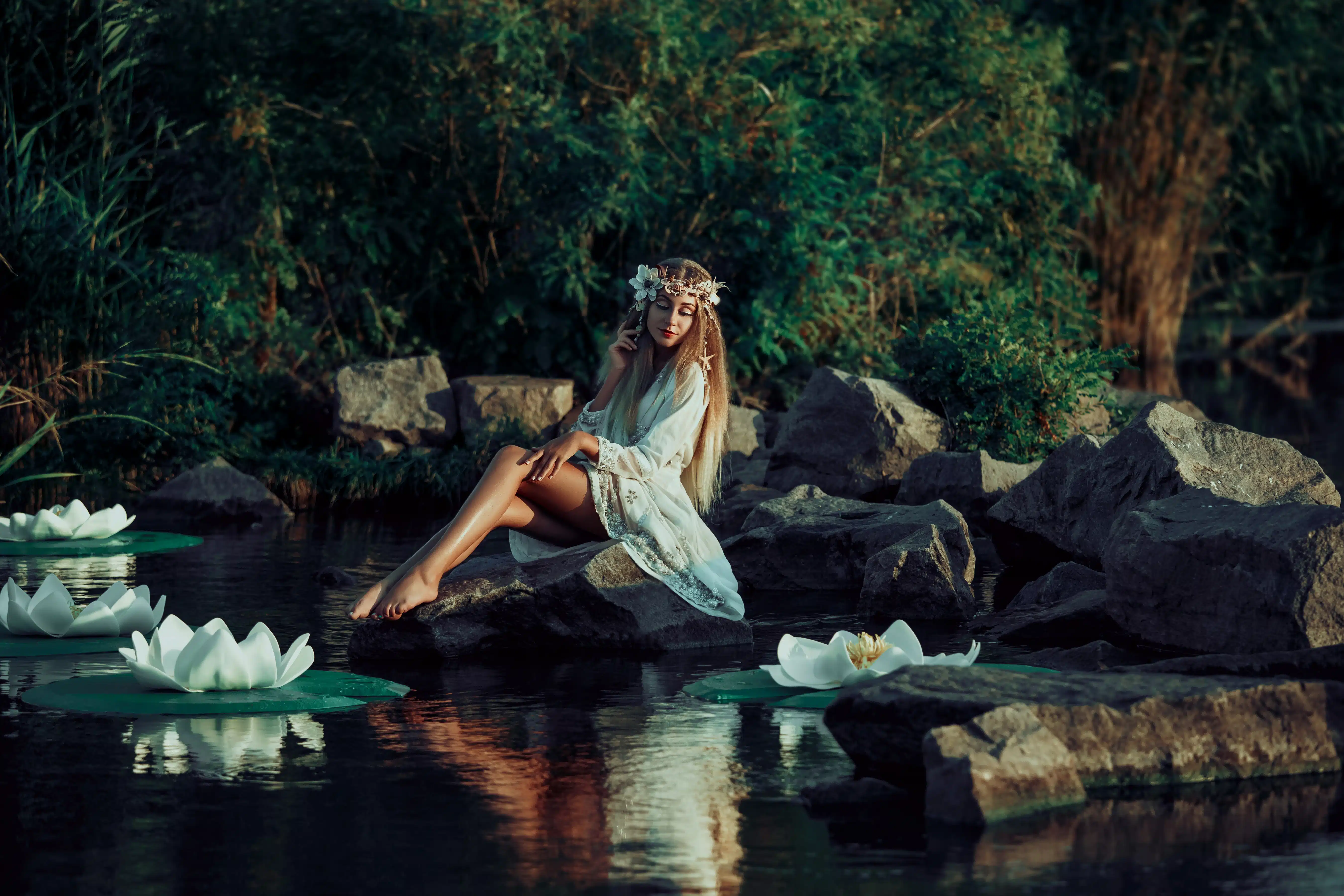
“The Lily” by William Blake
The modest Rose puts forth a thorn,
The humble Sheep a threat’ning horn;
While the Lily white shall in love delight,
Nor a thorn, nor a threat, stain her beauty bright.
“A Child’s Amaze” by Walt Whitman
Slient and amazed, even when a little boy,
I remember I heard the preacher every Sunday put God in his
statements,
As contending against some being or influence.
“Grace for a Child” by Robert Herrick
Here, a little child I stand,
Heaving up my either hand:
Cold as paddocks though they be,
Here I lift them up to Thee,
For a benison to fall
On our meat, and on us all. Amen.
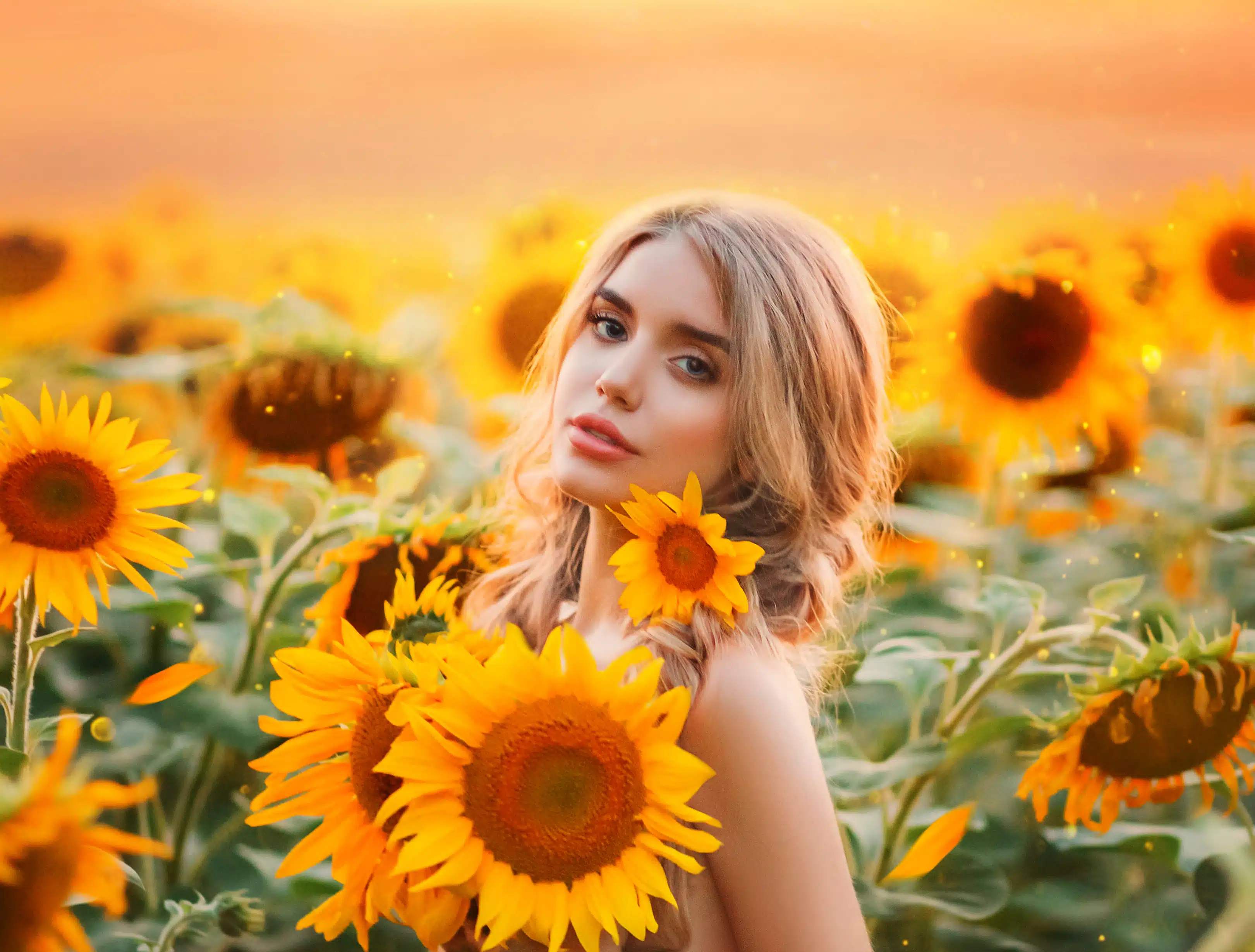
“Ah! Sun-Flower” by William Blake
Ah, sunflower, weary of time,
Who countest the steps of the sun;
Seeking after that sweet golden clime
Where the traveller’s journey is done;
Where the Youth pined away with desire,
And the pale virgin shrouded in snow,
Arise from their graves, and aspire
Where my Sunflower wishes to go!
